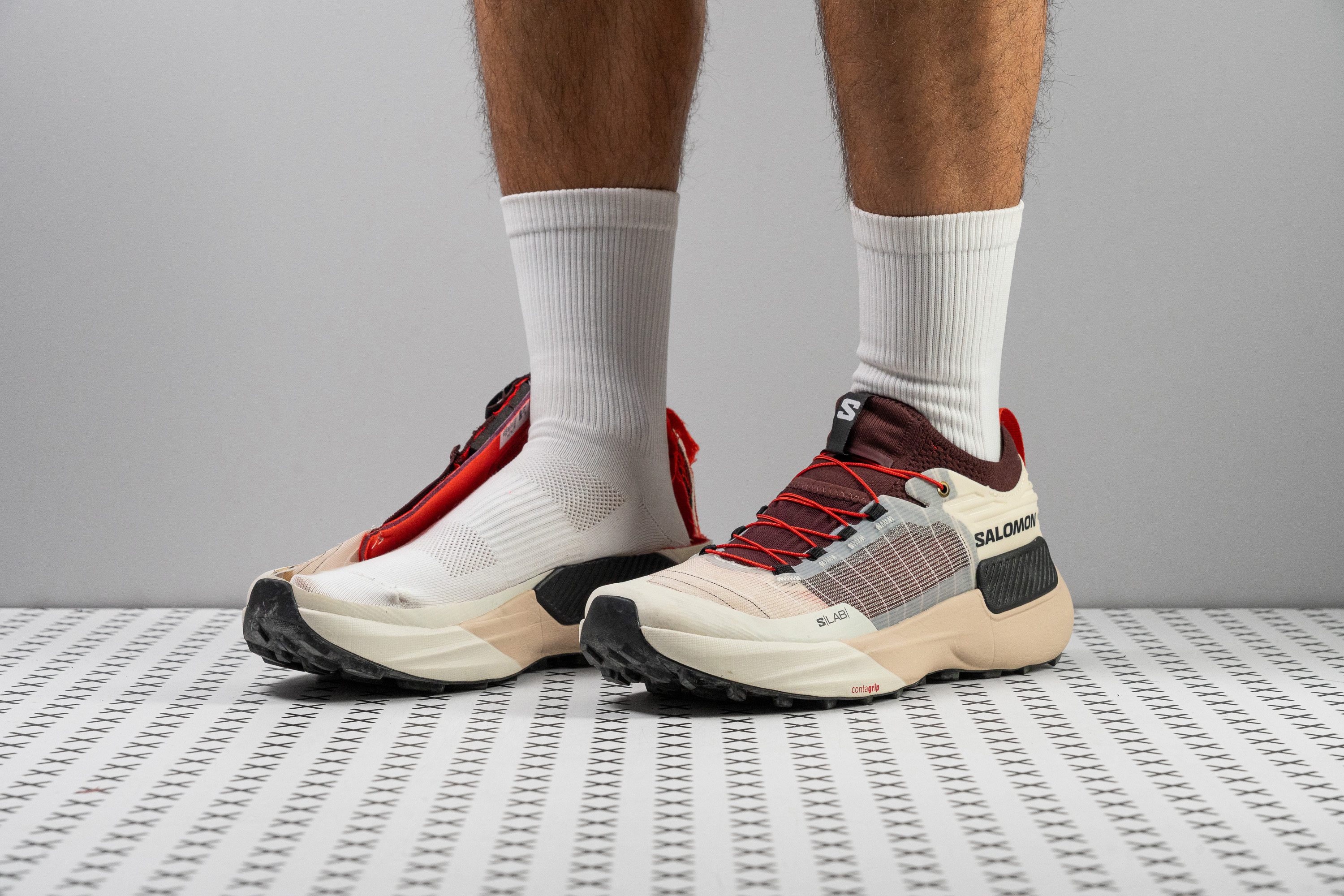Our verdict
- Top pick in best ultra running shoes
- Top pick in best Salomon trail running shoes
Pros
- Exceptionally lightweight
- Premium MATRYX upper
- Excellent lockdown
- Plush, well-padded tongue
- Quick and efficient Quicklace lacing system
- Works for running and hiking
- Versatile Contagrip outsole with rock plate
- Unique aesthetics
- Feels great on fast downhills
Cons
- EVA-based midsole lacks bounce
- Expensive for the technology provided
- Upper durability could be improved
- Low shock absorption
Audience verdict
- Top 4% in trail running shoes
- Top 10% in Salomon running shoes
Comparison
The most similar running shoes compared
+ + Add a shoe | |||||
|---|---|---|---|---|---|
| Audience score | 92 Superb! | 87 Great! | 77 Decent! | 85 Good! | |
| Price | £180 | £130 | £200 | £180 | |
| Trail terrain | Moderate | LightModerate | Light | Moderate | |
| Shock absorption | Moderate | - | High | - | |
| Energy return | Moderate | - | Low | - | |
| Traction | High | - | High | - | |
| Arch support | Neutral | Neutral | Neutral | Neutral | |
| Weight lab Weight brand | 8.8 oz / 249g 9.1 oz / 258g | 9.9 oz / 282g 9.9 oz / 280g | 8.7 oz / 247g 8.8 oz / 250g | 7.5 oz / 213g 8 oz / 227g | |
| Lightweight | ✓ | ✗ | ✓ | ✓ | |
| Drop lab Drop brand | 7.8 mm 8.0 mm | 6.0 mm 6.0 mm | 7.1 mm 6.0 mm | 7.2 mm 5.0 mm | |
| Strike pattern | Mid/forefoot | Mid/forefoot | Mid/forefoot | Mid/forefoot | |
| Size | True to size | Slightly small | - | Slightly small | |
| Midsole softness | Soft | Soft | Soft | Soft | |
| Difference in midsole softness in cold | Small | Small | Normal | Big | |
| Plate | Rock plate | Rock plate | ✗ | ✗ | |
| Toebox durability | Bad | Decent | Decent | Very bad | |
| Heel padding durability | Decent | Good | Good | Good | |
| Outsole durability | Decent | Good | Good | Decent | |
| Breathability | Moderate | Moderate | Warm | Moderate | |
| Width / fit | Medium | Medium | Medium | Narrow | |
| Toebox width | Medium | Wide | Medium | Medium | |
| Stiffness | Moderate | Stiff | Moderate | Stiff | |
| Torsional rigidity | Moderate | Flexible | Stiff | Moderate | |
| Heel counter stiffness | Flexible | Flexible | Moderate | Flexible | |
| Lug depth | 4.3 mm | 3.9 mm | 3.0 mm | 3.7 mm | |
| Heel stack lab Heel stack brand | 31.9 mm 33.0 mm | 30.1 mm 29.0 mm | 32.6 mm 31.0 mm | 29.8 mm 30.0 mm | |
| Forefoot lab Forefoot brand | 24.1 mm 25.0 mm | 24.1 mm 23.0 mm | 25.5 mm 25.0 mm | 22.6 mm 25.0 mm | |
| Widths available | Normal | NormalWide | Normal | Normal | |
| Season | All seasons | All seasons | All seasons | All seasons | |
| Removable insole | ✓ | ✓ | ✗ | ✓ | |
| Orthotic friendly | ✓ | ✓ | ✗ | ✓ | |
| Ranking | #16 Top 5% | #175 Top 46% | #353 Bottom 7% | #232 Bottom 39% | |
| Popularity | #353 Bottom 7% | #327 Bottom 14% | #375 Bottom 2% | #224 Bottom 41% |
Who should buy
In our view, the S/Lab Genesis is an excellent choice for:
- Runners who enjoy a lightweight feel, whether for short runs, hiking, or ultra racing.
- Those seeking a versatile trail shoe that performs well on varied terrain, offering an exceptional lockdown... and who don’t mind the premium price.
- Salomon enthusiasts who loved the Genesis and now want its top-tier S/Lab version.
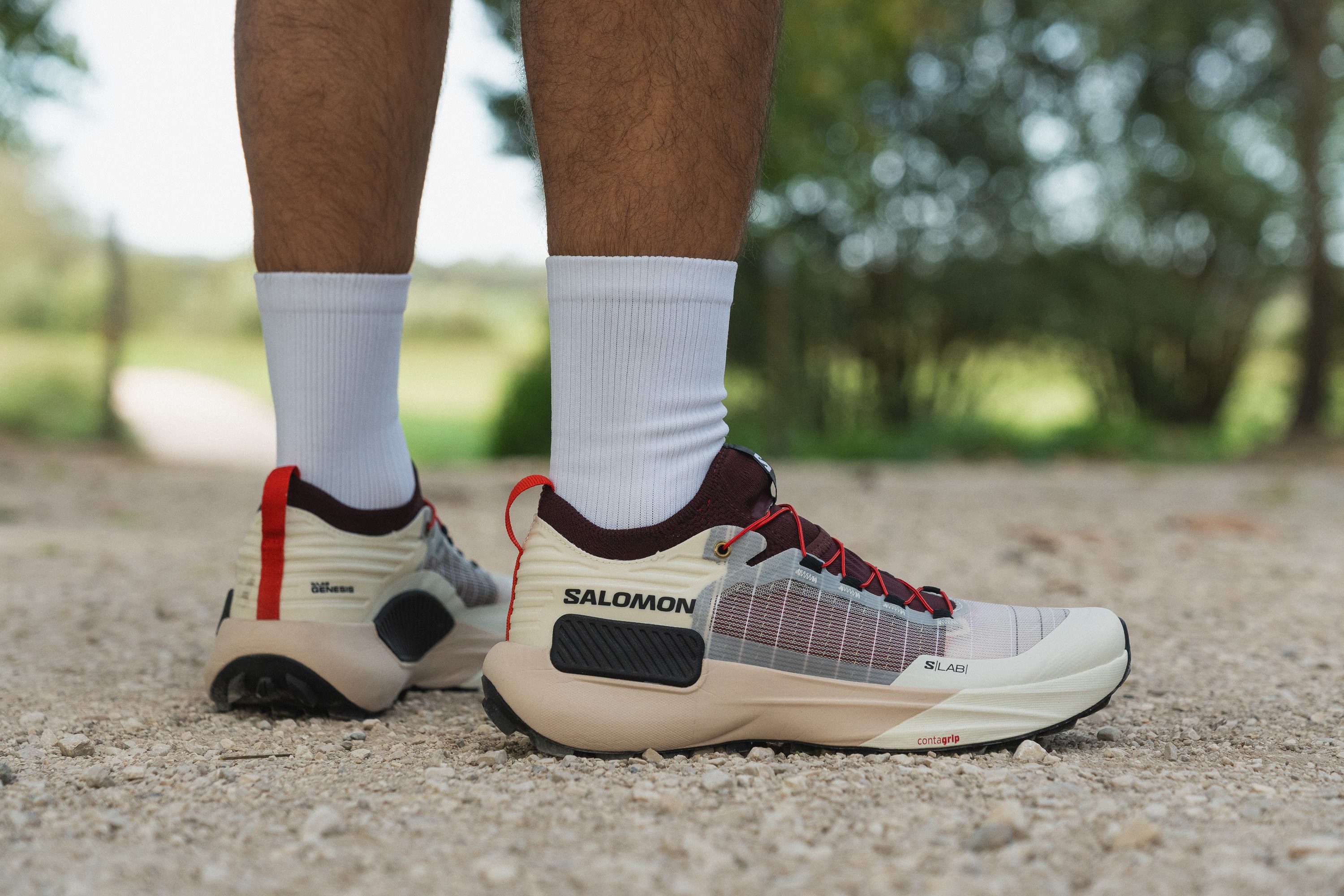
Who should NOT buy
We believe the biggest problem with the S/Lab Genesis is right in its name. Much like S-Works for Specialised, the S/Lab badge signals top-tier innovation and materials, but also a high price. And we think runners could easily find better value in models like the Hoka Speedgoat 6 or Nike Wildhorse 10, which offer strong all-around performance while saving a decent amount of money.
After testing, we also found that the energy return is underwhelming for its price tag. The EVA-based foam simply can’t compete with PEBA or A-TPU compounds found in other high-performance trail shoes. Those who crave an energy-charged feel should consider the Hoka Tecton X 3 or Adidas Terrex Agravic Speed Ultra instead.
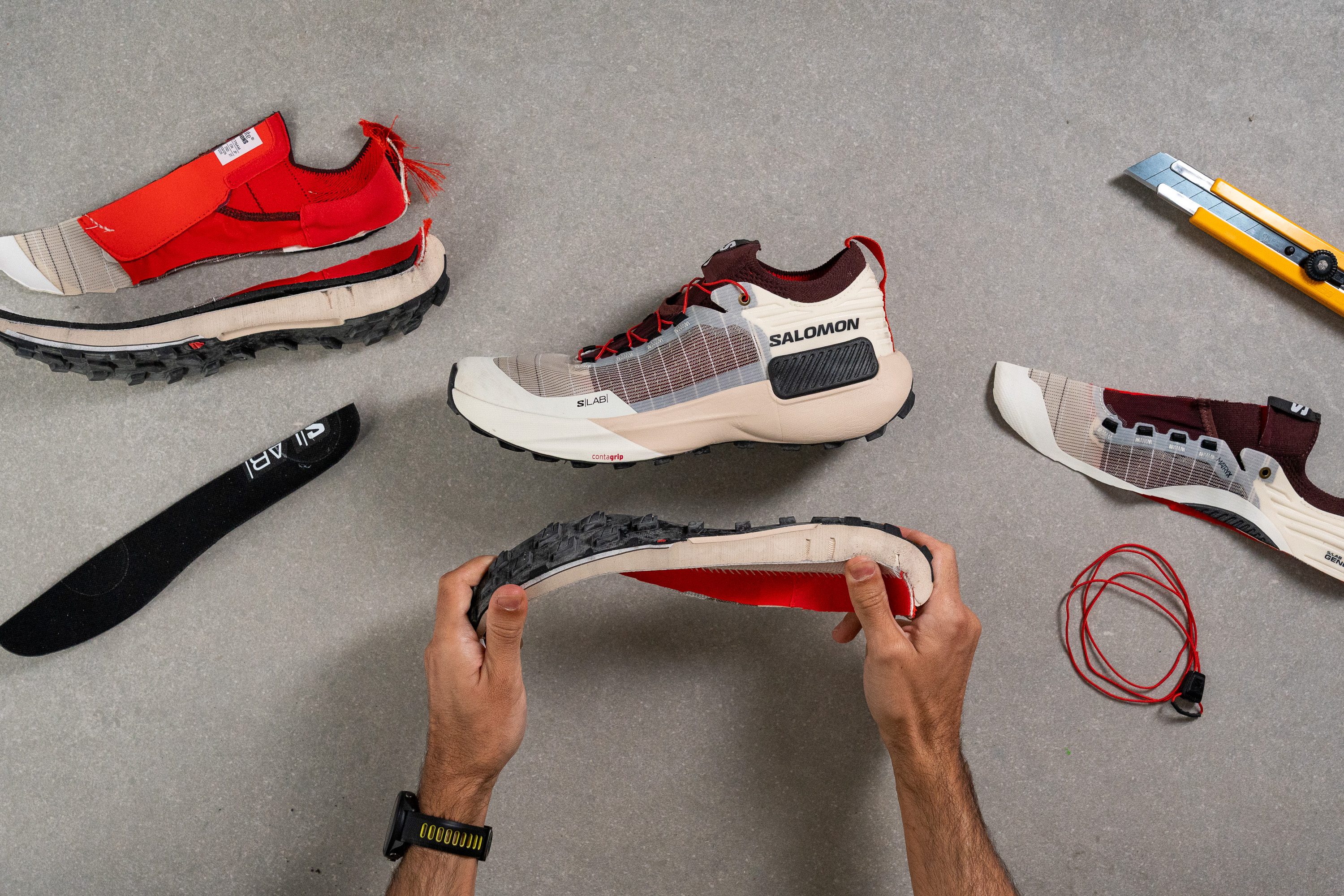
Cushioning
Shock absorption
Based on our lab tests, we discovered that the S/Lab Genesis feels better suited for lightweight runners or those who don’t mind limited cushioning, as it scored 121 SA in the heel and 87 SA in the forefoot.
Still, these results aren’t negative. This lower-shock, ground-connected midsole is often preferred by runners seeking a more natural ride that enhances control especially on technical terrain.
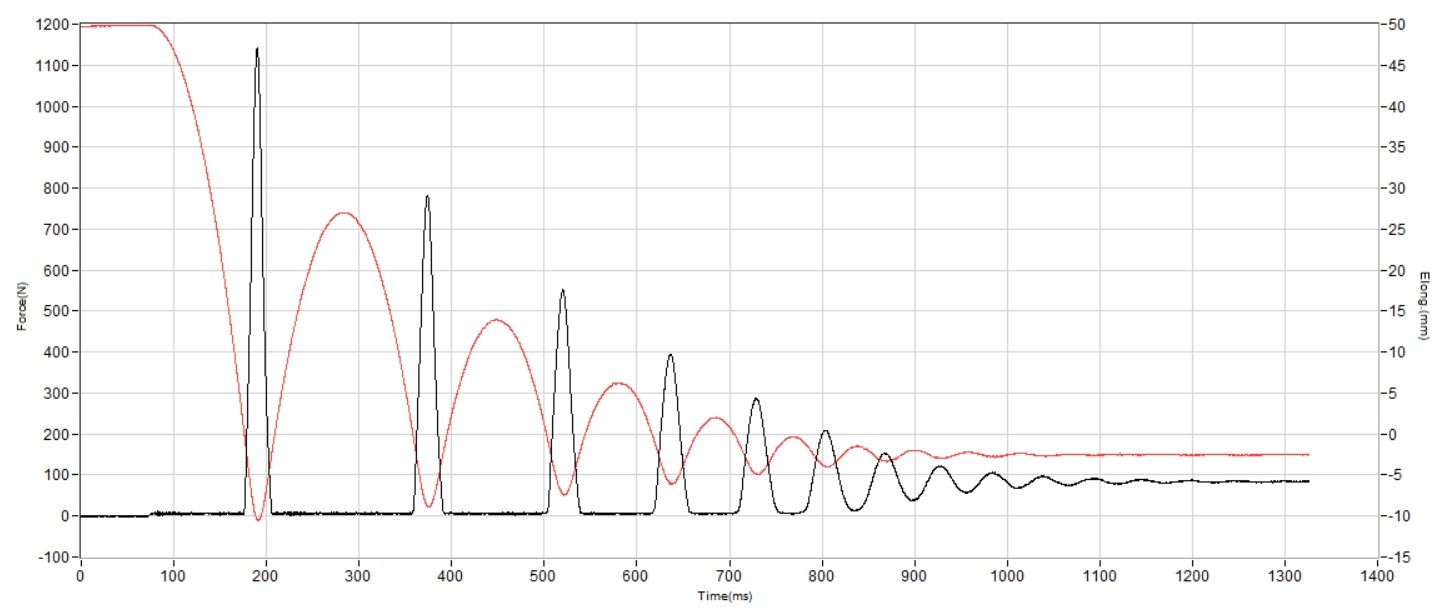
| S/Lab Genesis | 121 SA |
| Average | 122 SA |
Energy return
The main drawback we found in the S/Lab Genesis is its low energy return. Using our testing machine based on the ASTM F1976 standard, we measured how much rebound the foam delivers, and it’s noticeably limited.
In our lab tests, we recorded 55.6% in the heel and 59.4% in the forefoot, and both numbers fall into the average range for trail shoes. Considering its premium price, we expected a more responsive feel, to be honest. Hopefully, Salomon will move the next version to the faster EnergyFoam EVO compound we’ve already seen in the Aero Glide 3.
| S/Lab Genesis | 55.6% |
| Average | 55.3% |
Heel stack
The S/Lab Genesis stands out in today’s trail running landscape with its moderate stack height. While most brands push toward 35 mm or even 40 mm as the new standard, we appreciate how Salomon keeps this model closer to the ground, offering a more connected feel with the terrain.
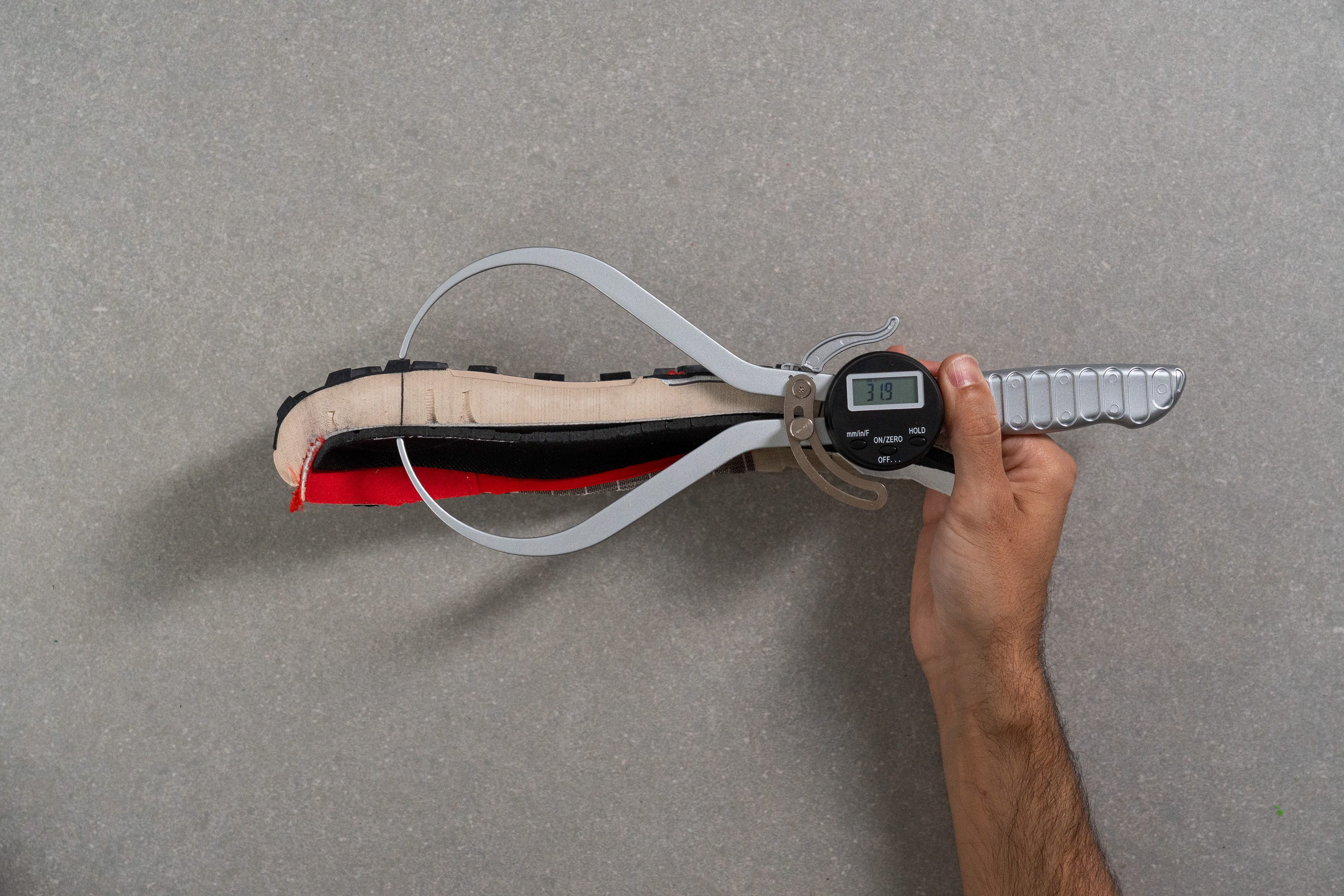
| S/Lab Genesis | 31.9 mm |
| Average | 32.6 mm |
Forefoot stack
The forefoot follows the same approach with just 24.1 mm of stack height.
In our opinion, this isn’t a shoe for runners chasing maximum foam underfoot (look at the ASICS Metafuji Trail for that) but rather for those who appreciate a balanced blend of cushioning, ground feel, and precise control.
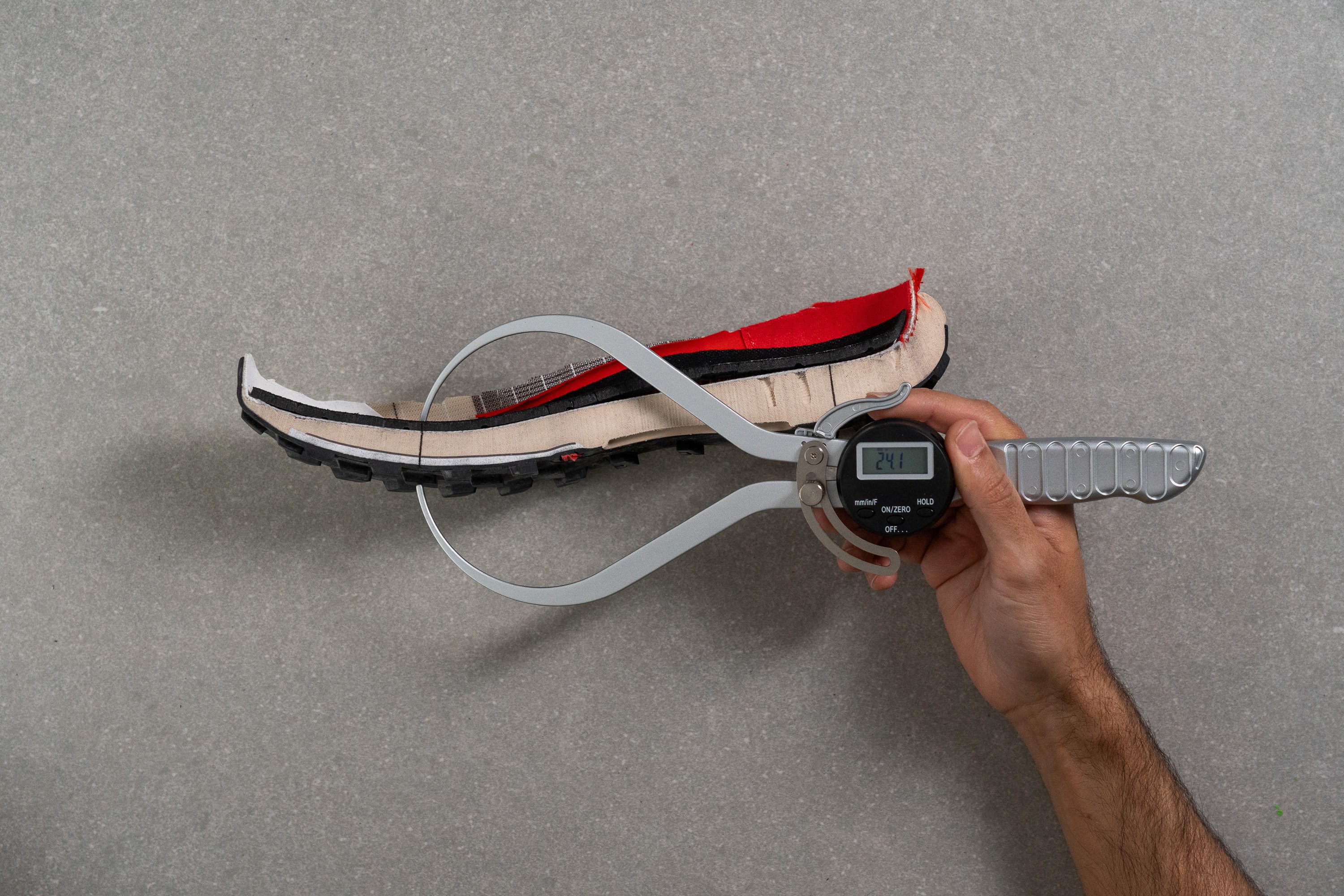
| S/Lab Genesis | 24.1 mm |
| Average | 25.1 mm |
Drop
Salomon lists the S/Lab Genesis with an 8 mm drop, and our measurements revealed a real difference of 7.8 mm between heel and forefoot.
This confirms the shoe’s versatility for any footstrike, and we appreciate the near-perfect 0.2 mm accuracy.
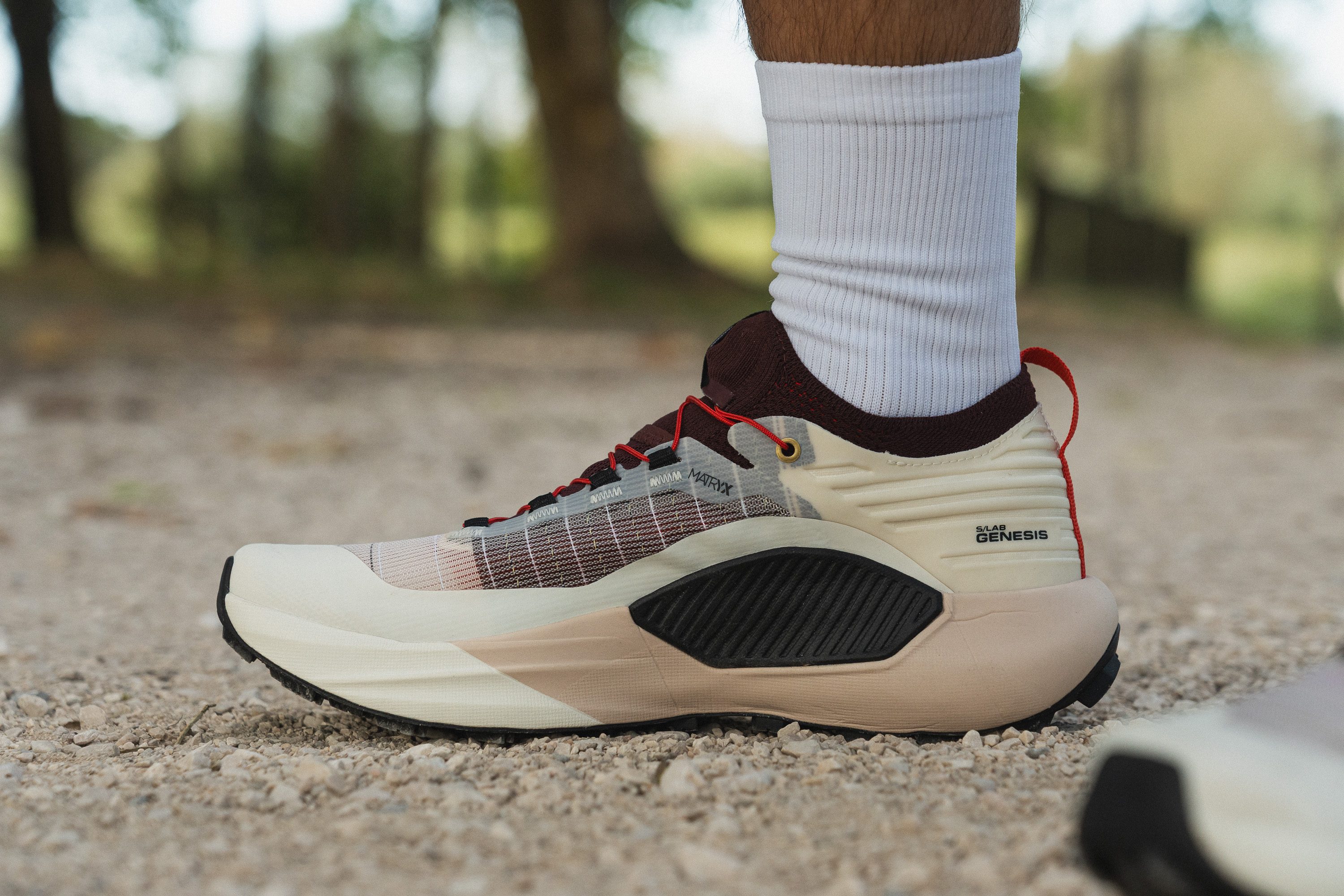
| S/Lab Genesis | 7.8 mm |
| Average | 7.6 mm |
Midsole softness
Despite its premium price, the S/Lab Genesis uses Salomon’s EVA-based optiFOAM compound. That's a slight disappointment for us due to its moderate energy return, as we explained before.
But setting that aside, we measured 19.5 HA on our Shore A durometer, placing it between soft and average for a trail shoe. However, combined with its lower stack height and integrated rock plate, it delivers a feel closer to a standard road daily trainer.
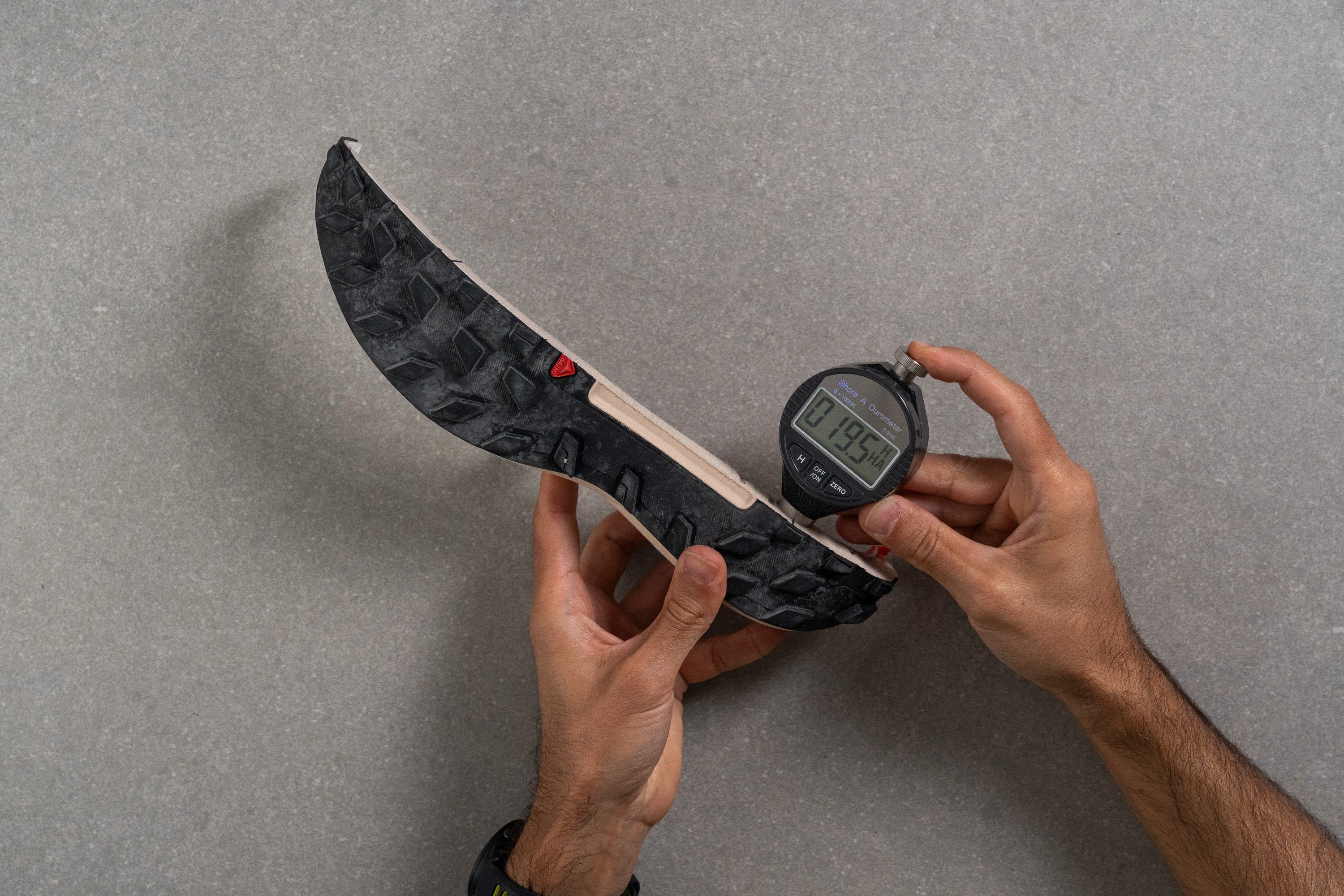
| S/Lab Genesis | 19.5 HA |
| Average | 22.0 HA |
Secondary foam softness
A razor-thin layer of firm white foam sits beneath the rock plate, serving as the shoe’s initial protective barrier. In our tests, this layer measured 30.0 HA on the durometer.
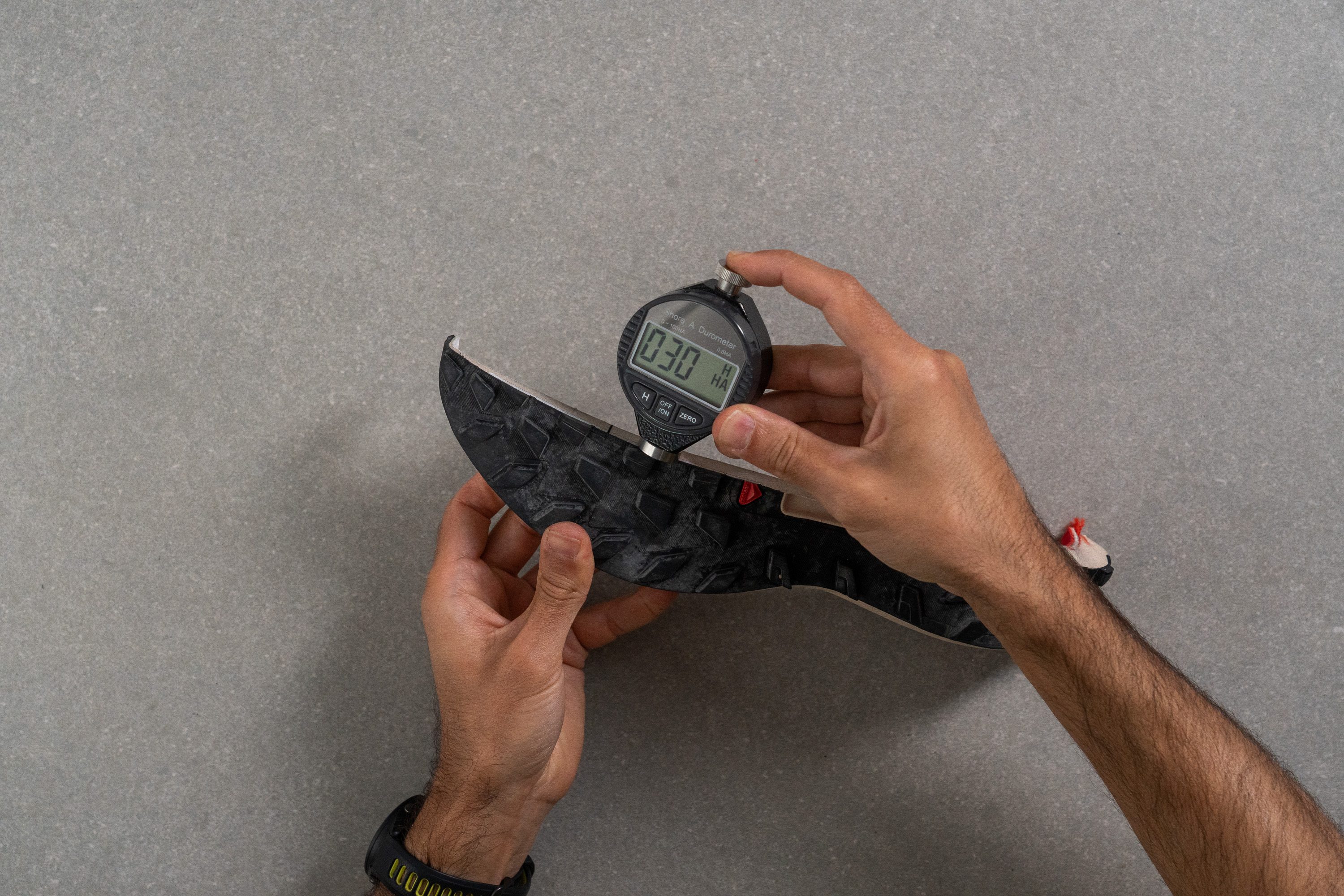
| S/Lab Genesis | 30.0 HA |
| Average | 25.3 HA |
Rocker
The rocker of the S/Lab Genesis isn’t particularly pronounced, yet it doesn’t need to be given its near-average stack height. However, heel strikers will clearly notice the curved heel, which slightly smooths transitions for those who land heavily on their heels.
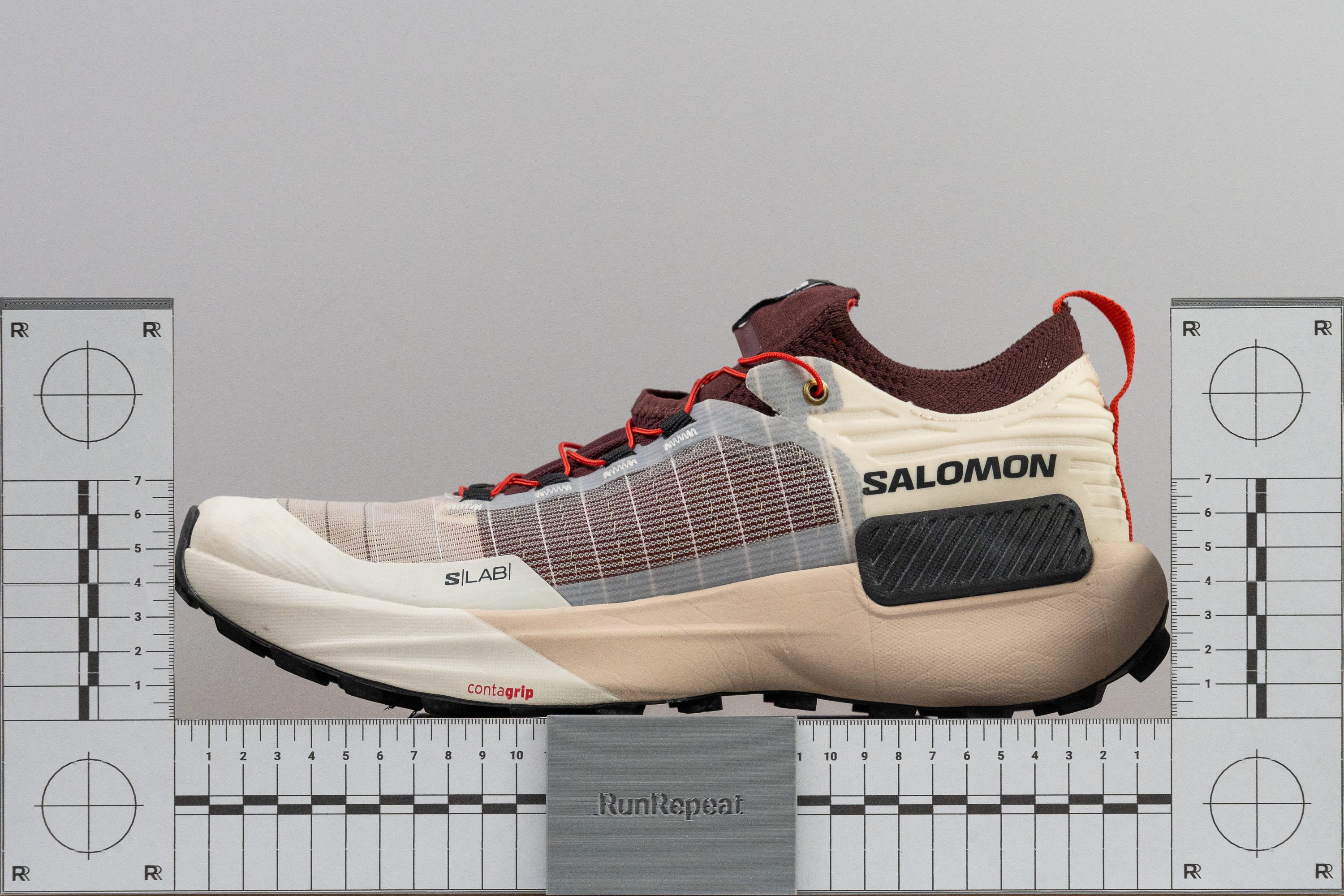
Plate
The Salomon S/Lab Genesis features a rock plate called profeelFILM, which serves as both a protective barrier against sharp objects and a stabilising element for runners who land on their forefoot.
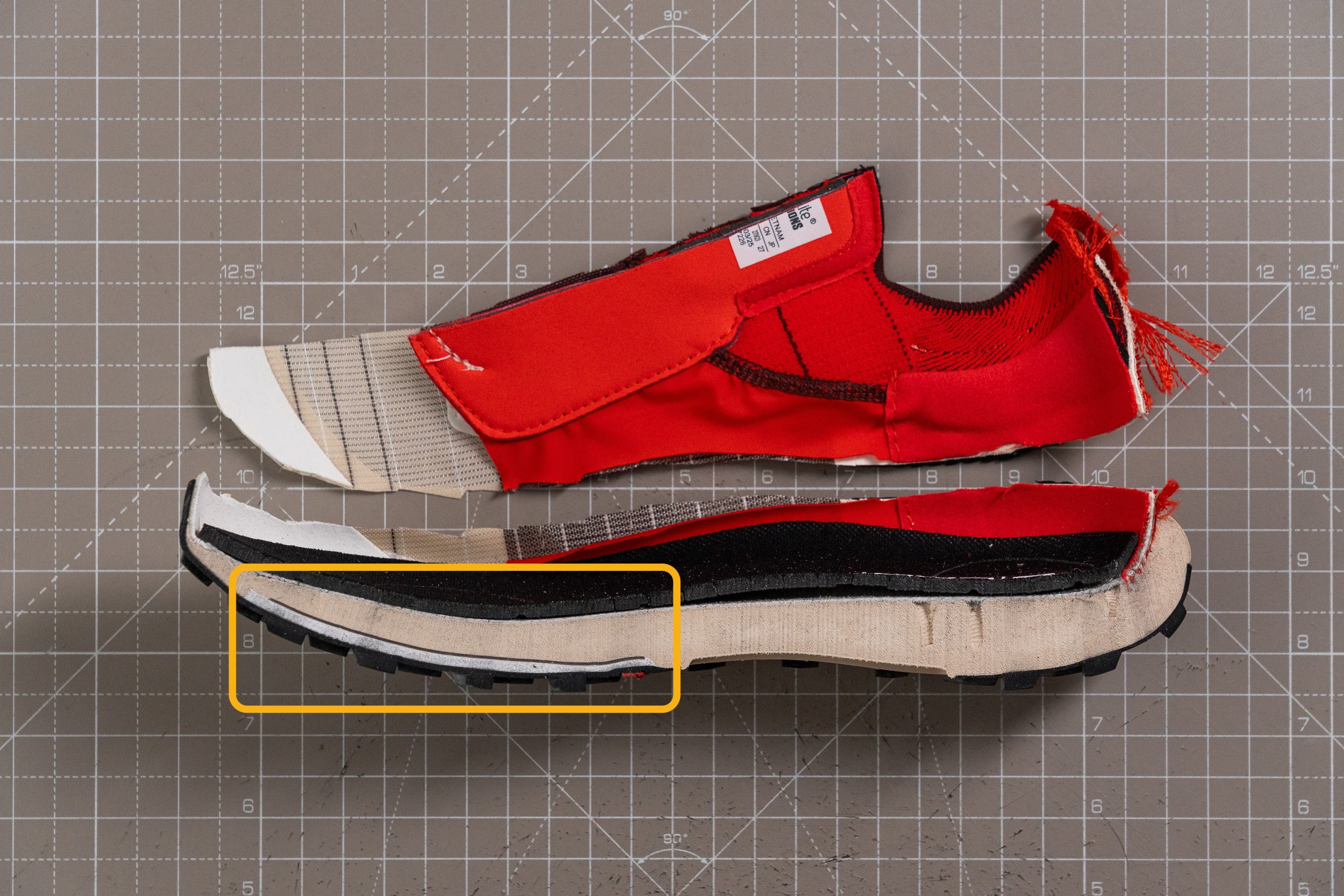
Size and fit
Size
Salomon S/Lab Genesis fits true to size (11 votes).
Width / Fit
Salomon is known for designing race-oriented, snug-fitting S/Lab shoes, but this model breaks that trend.
After creating our signature gel mould, we measured 94.2 mm, definitely closer to average than narrow. Still, we kept measuring, as most runners often report tightness in the toebox rather than this area...
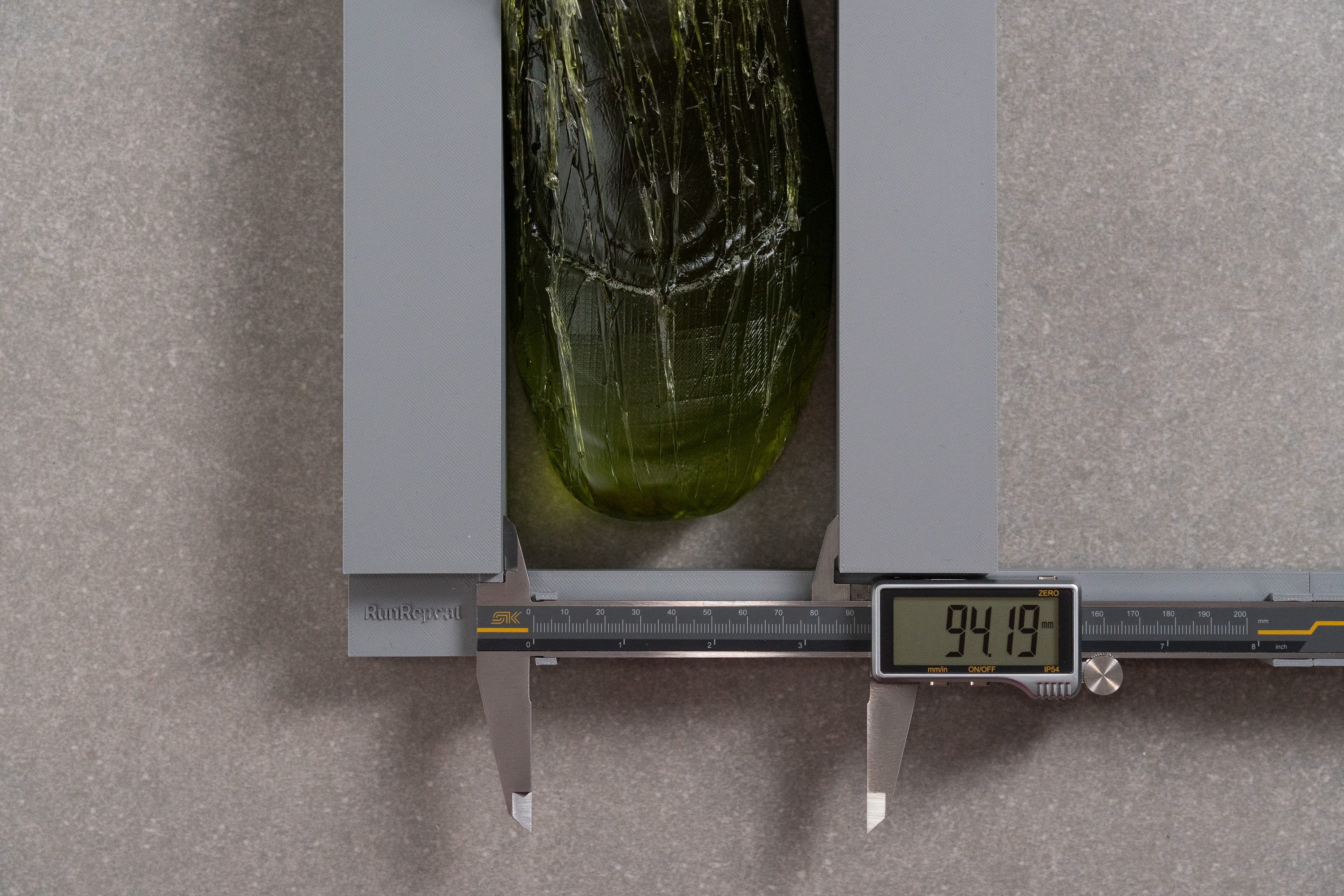
| S/Lab Genesis | 94.2 mm |
| Average | 95.6 mm |
Toebox width
The toebox offers plenty of room at 74.8 mm, so it's far from restrictive. Obviously, it’s not as spacious as an Altra, but the shoe’s shape clearly avoids a toe-crushing design, marking a positive shift for Salomon.
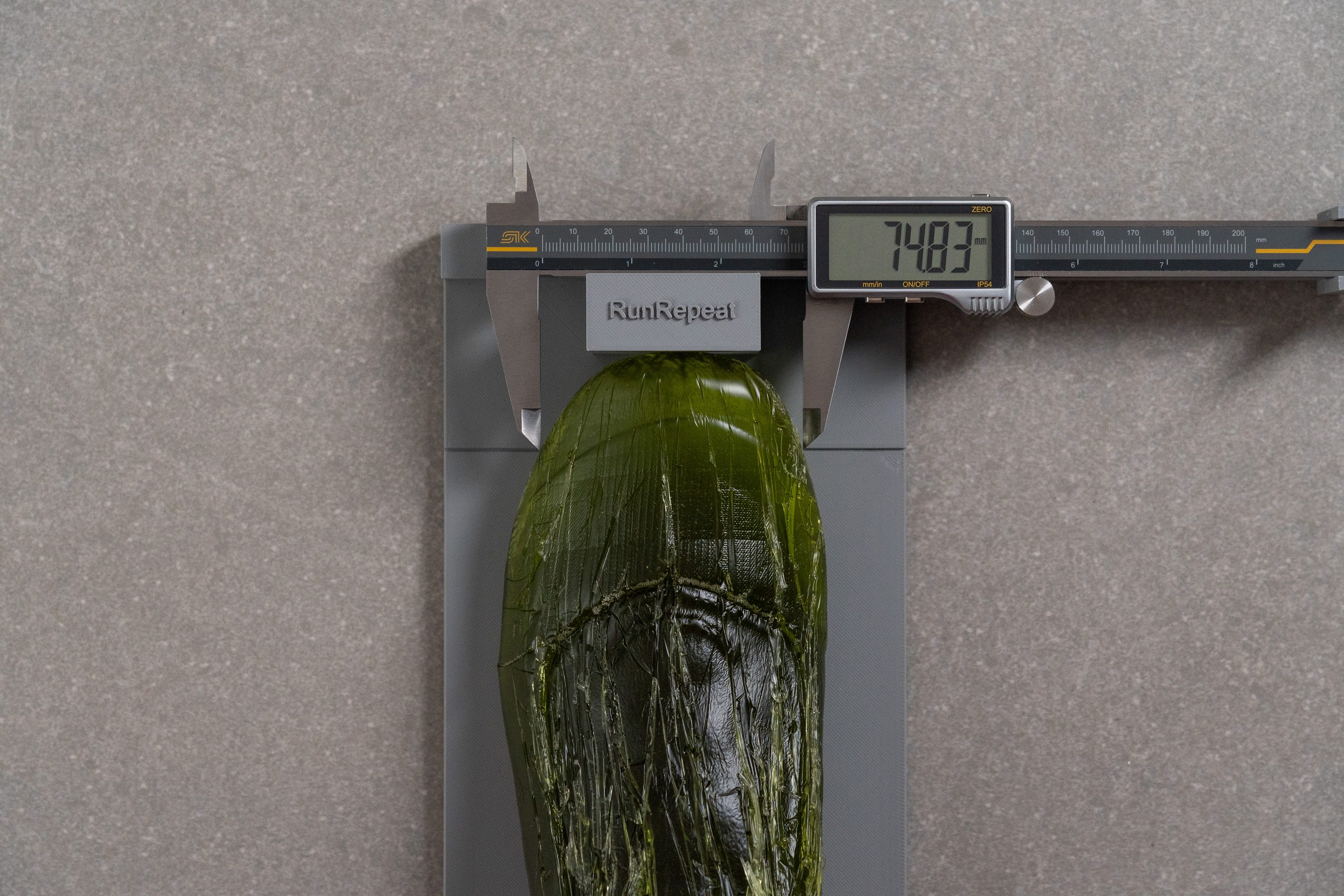
| S/Lab Genesis | 74.8 mm |
| Average | 74.6 mm |
Toebox height
The S/Lab identity remains more evident in the toebox height.
With 25.1 mm of vertical space, it maintains that precise, race-oriented feel that some runners love and others dislike. In our view, since this model is often used in competitive ultras, this design choice makes sense.
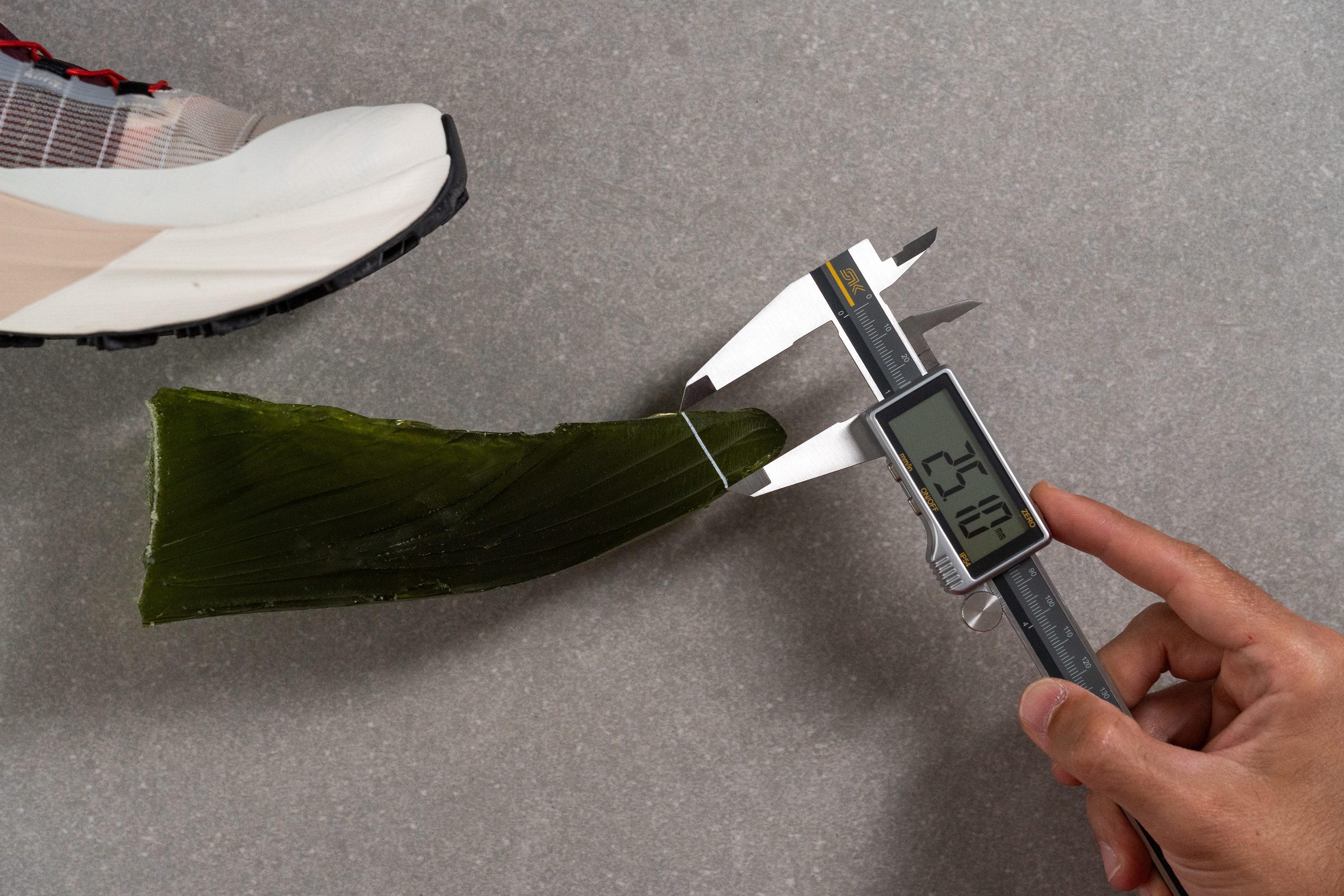
| S/Lab Genesis | 25.1 mm |
| Average | 27.0 mm |
Traction / Grip
Forefoot traction
Contagrip rubber has never matched the bite of Vibram Megagrip, but Salomon remains committed to its own compound, and that likely won’t change soon. With a 0.55 score, though, it still provides enough traction to feel confident in most conditions.
| S/Lab Genesis | 0.55 |
| Average | 0.61 |
Lug depth
This could be a letdown for many, but Salomon keeps insisting with their Contagrip rubber instead of partnering with Vibram, something that in our view, would made sense for their higher-end trail shoes. Just like Nike did a few years ago with the Ultrafly.
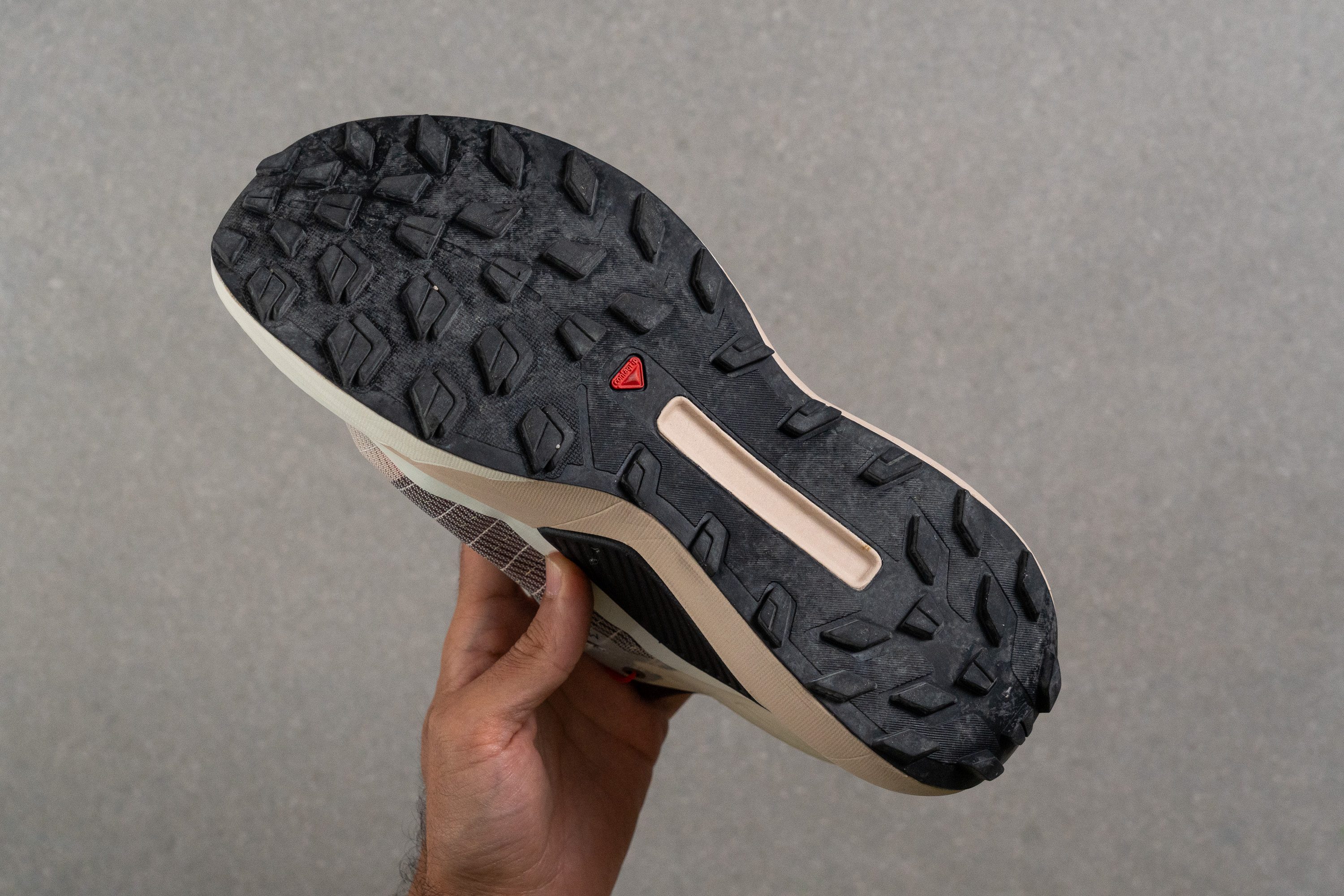
Instead, Salomon sticks with the same Contagrip outsole that, while not exceptional, performs reliably well. Its 4.5-mm lugs are strategically angled for multidirectional grip, with generous spacing (especially in the midfoot) that enhances traction on loose trails and slightly muddy surfaces. In our experience, the only potential weak point for this outsole are wet rocks.
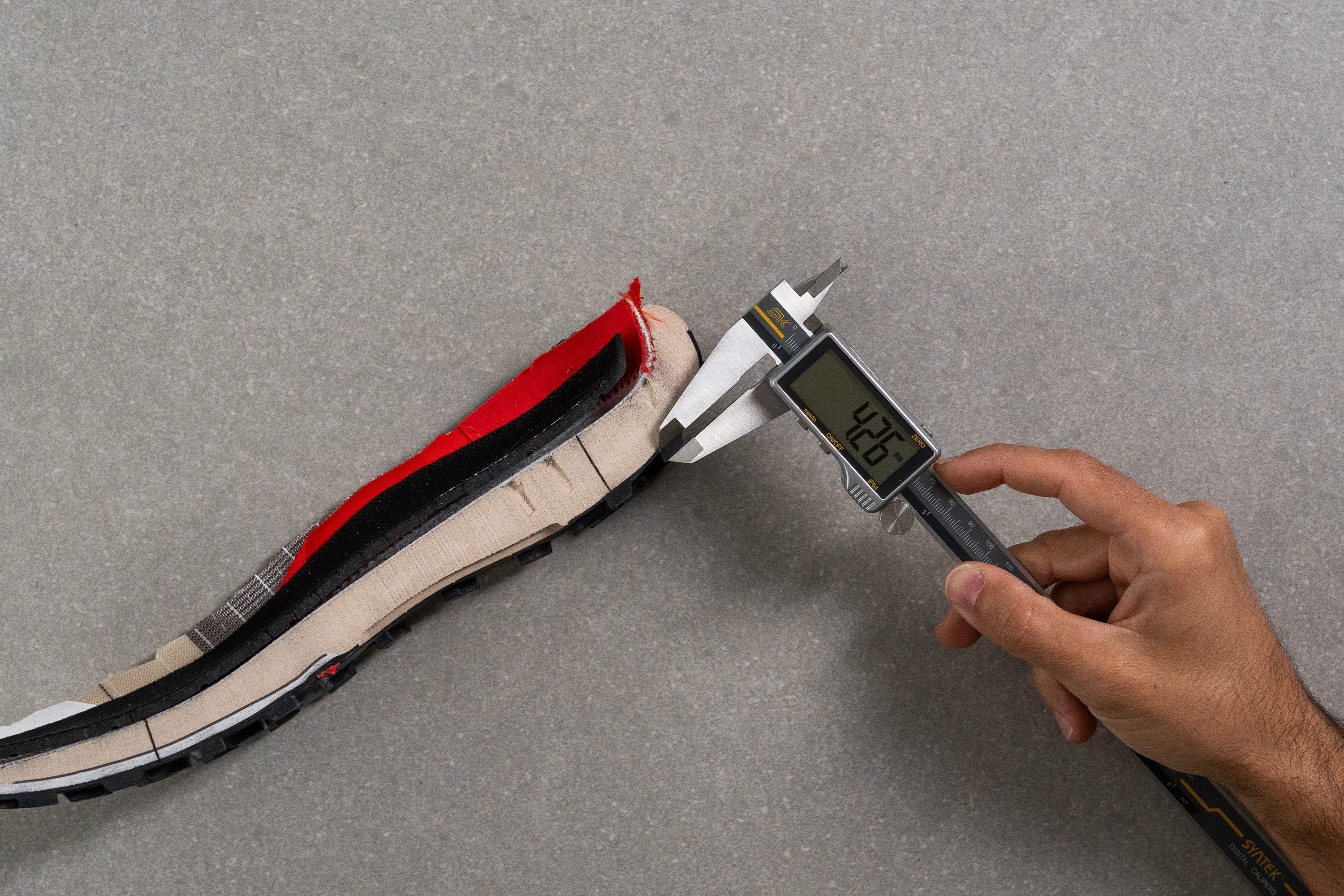
| S/Lab Genesis | 4.3 mm |
| Average | 3.5 mm |
Outsole design
We appreciated that Salomon maintained nearly full rubber coverage, leaving only a small channel in the midfoot area that doesn’t affect durability. It’s even surprising to see no cutouts, unlike most brands currently trimming weight that way.
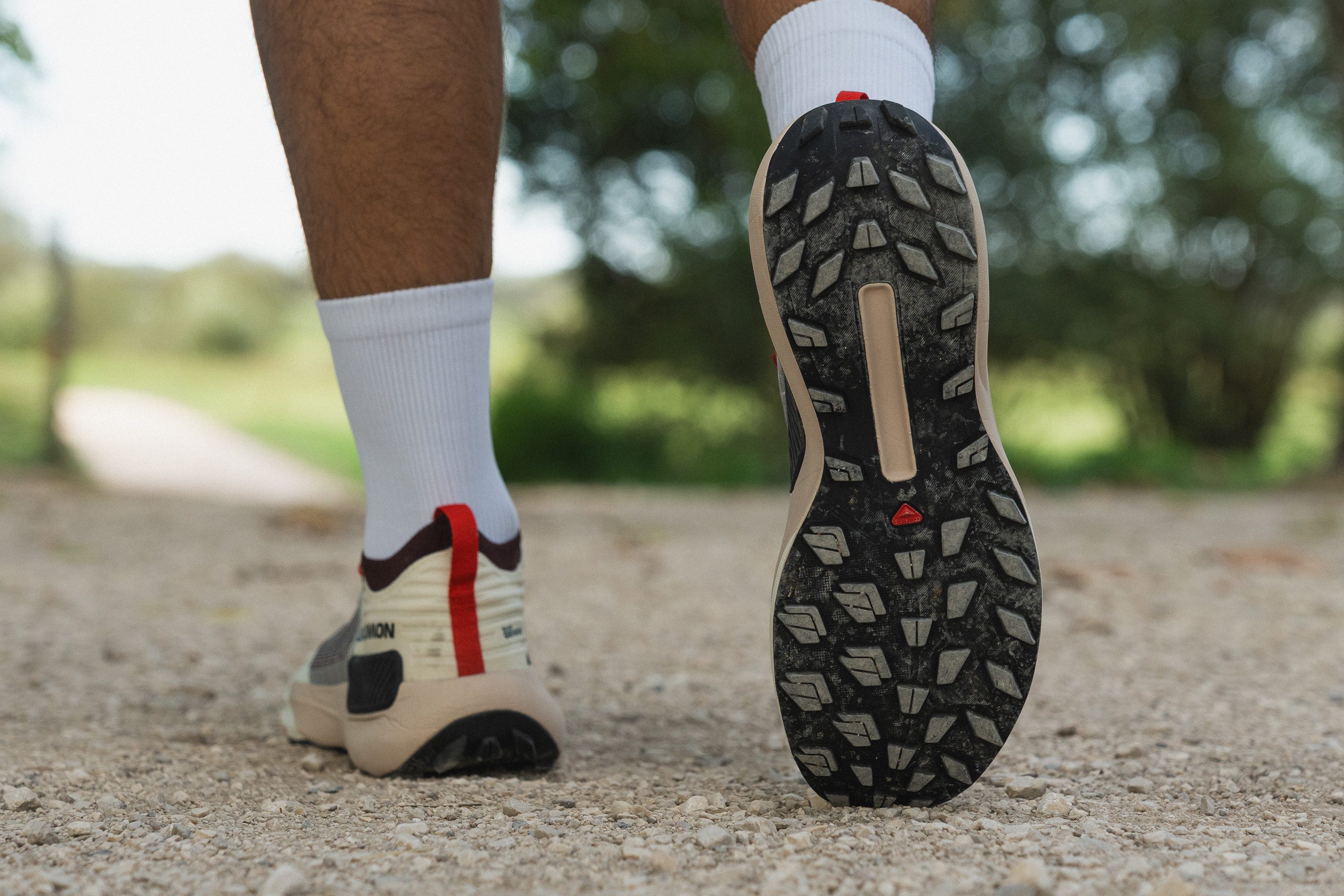
Flexibility / Stiffness
With its moderate stack height, the S/Lab Genesis delivers solid flexibility, measuring 13.7N in our test. Impressively, it achieves this without relying on outsole cutouts, which are often used to enhance flex.
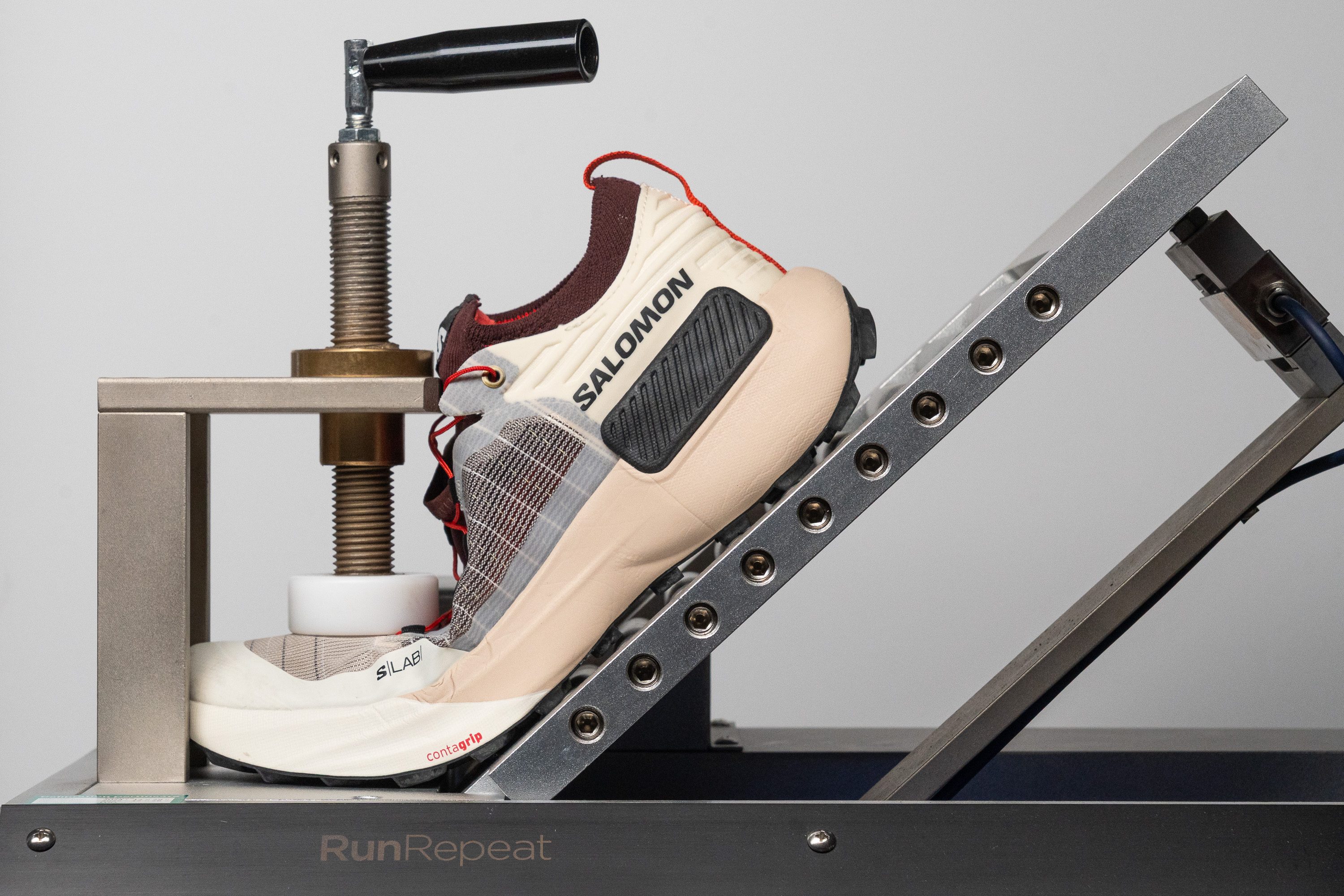
| S/Lab Genesis | 13.8N |
| Average | 14.6N |
Weight
One of the standout features of the S/Lab Genesis is its remarkably low weight, as we measured just 8.8 oz or 249g. That’s truly impressive for a shoe with full rubber coverage and a heavy EVA-based midsole.
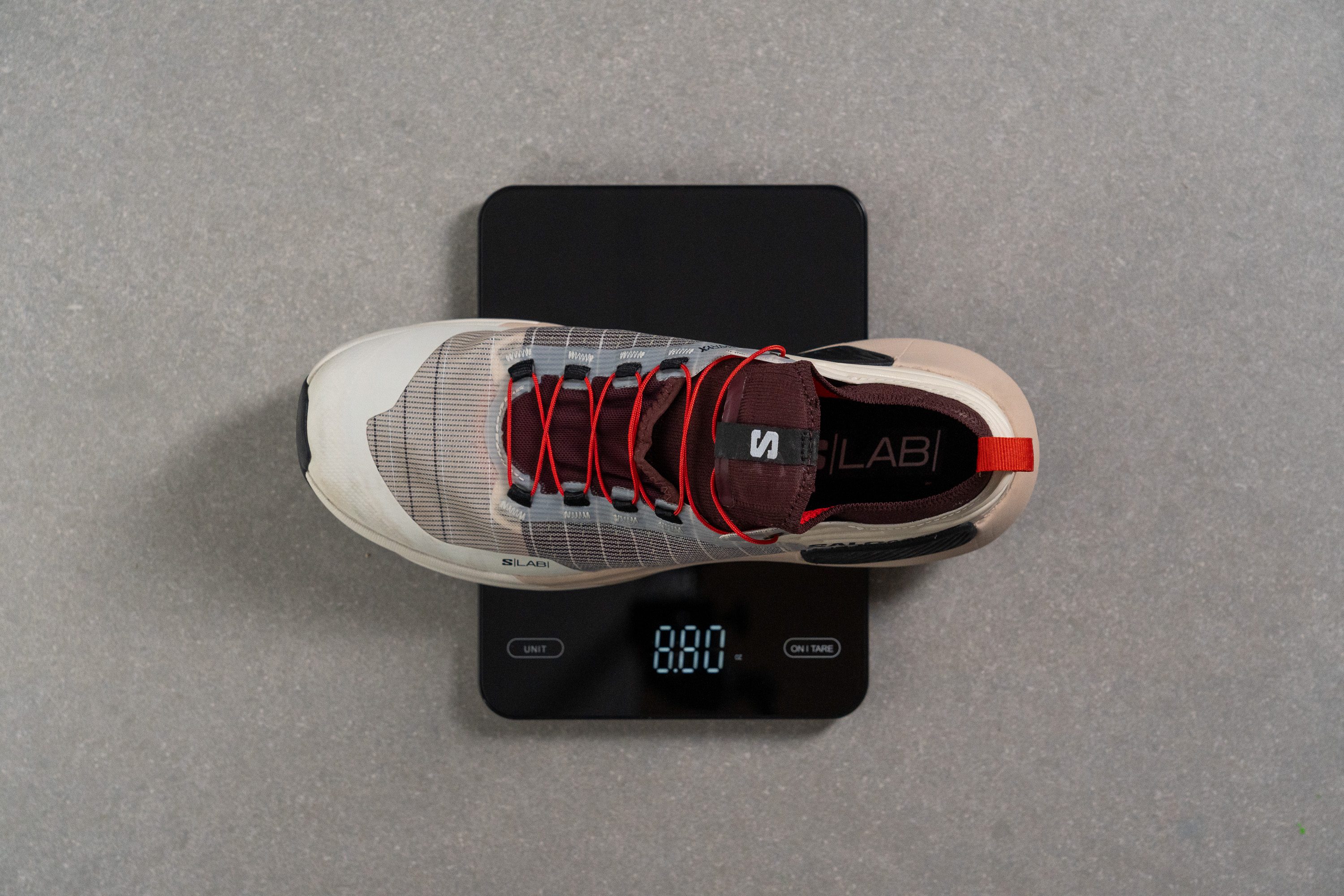
| S/Lab Genesis | 8.8 oz (249g) |
| Average | 10.2 oz (289g) |
Breathability
If you go for the S/Lab Genesis, you won’t be getting a state-of-the-art foam, that’s clear by now... but you will get top-tier tech in the upper.
This shoe uses a MATRYX engineered mesh that delivers strong breathability (4/5), ultra-light weight, and excellent comfort.
When we examined it under a LED light, we could clearly see how Salomon structured it in two different parts: a breathable toebox with minimal material and a denser construction through the rest of the upper.
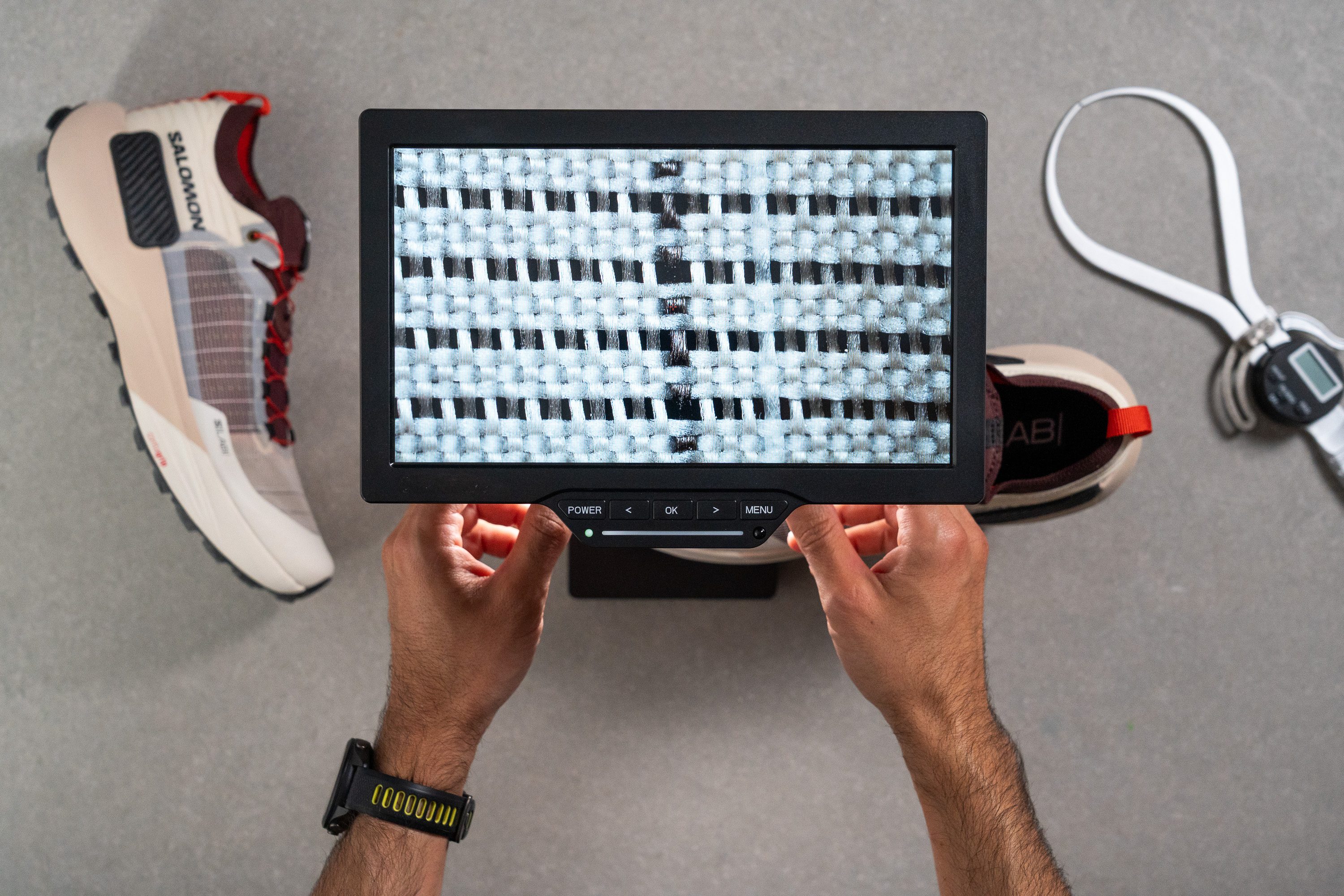
The MATRYX fabric is reinforced with Kevlar yarns, offering exceptional precision and craftsmanship, along with better resistance to dust and water than average materials.
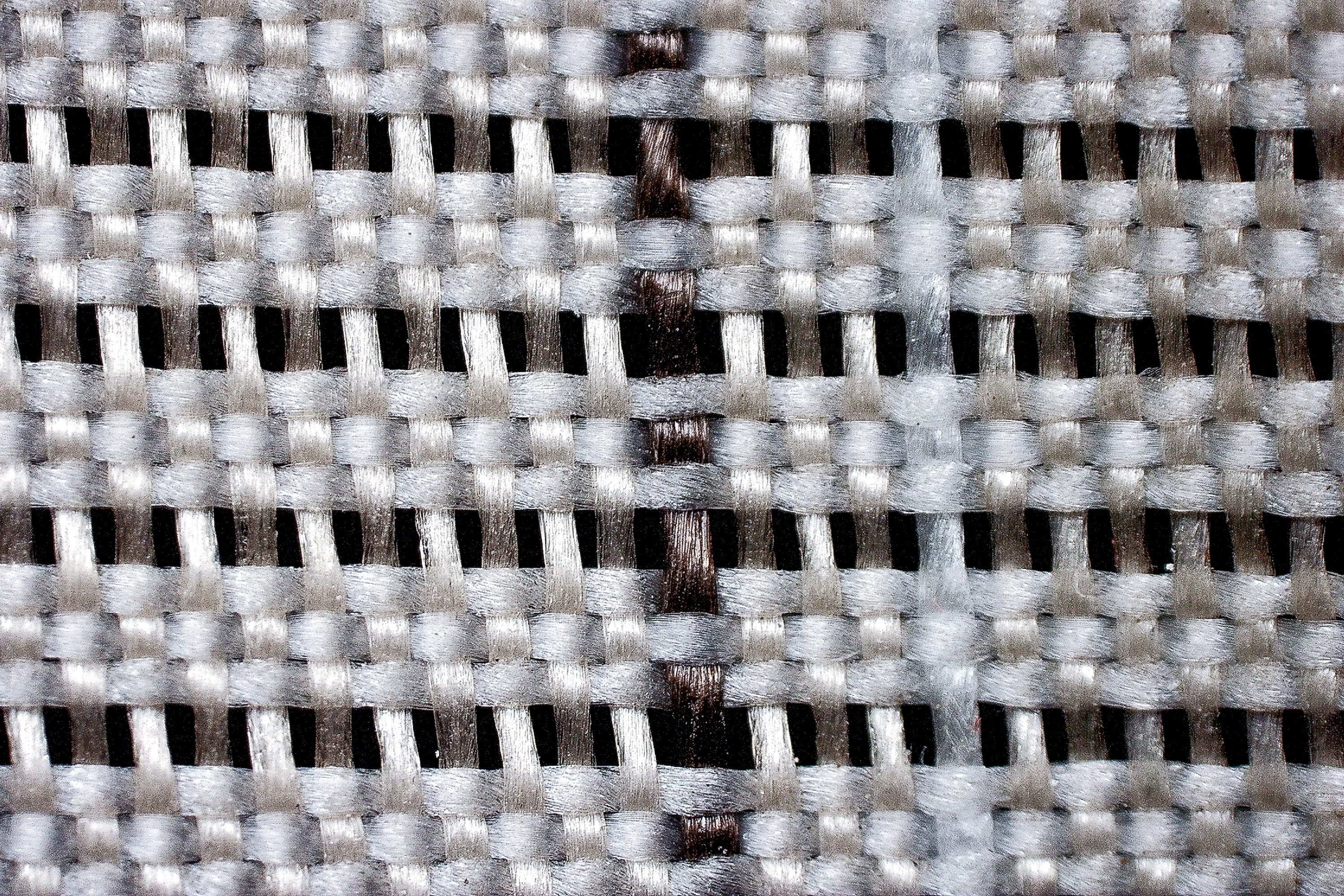
Overall, we believe that the upper is one of the shoe’s main highlights and likely the biggest factor behind its high price. Oh, and we also liked the heel’s foam pads, though their lower placement may not suit everyone.
| S/Lab Genesis | 4 |
| Average | 3.3 |
Stability
Lateral stability test
One thing we really liked about the S/Lab Genesis is that it feels like an honest shoe. What you see is what you get.
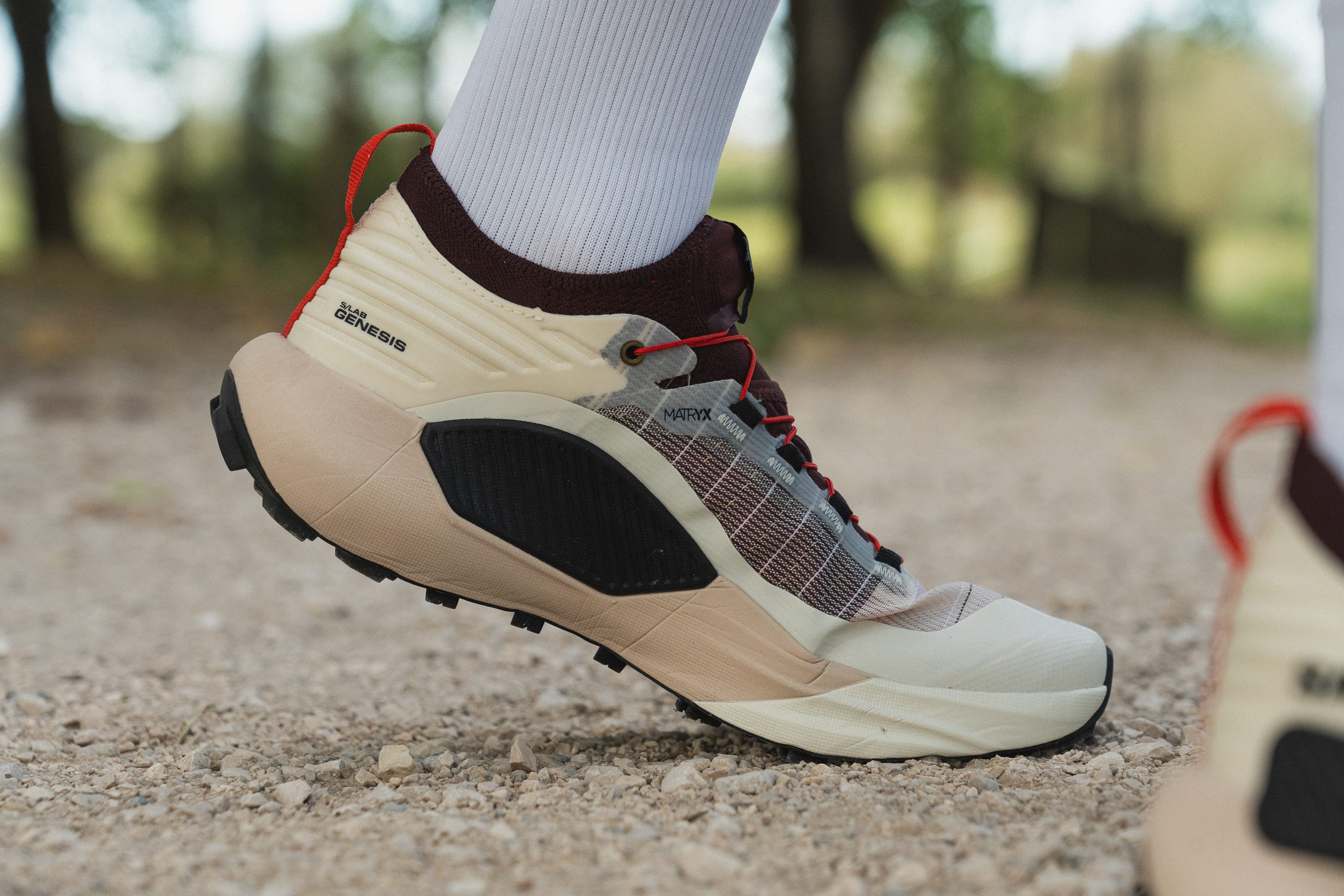
There are no hidden stability tricks, just two large black foam pads that keep the foot securely centred and a big TPU piece that wraps the heel. We liked this approach and found it provides a stable ride for neutral runners, though those needing extra support may find it lacking due to the average dimensions of the midsole.
Torsional rigidity
The S/Lab Genesis skips both a full-length plate and a bulky midsole, which makes it noticeably easier to bend and twist than most modern trail shoes and renders it as an interesting option for walking or hiking. In our torsional rigidity test, it scored a below-average 3/5.
| S/Lab Genesis | 3 |
| Average | 3.6 |
Heel counter stiffness
We found during our runs that the heel hold is excellent, thanks to a smart combination of a built-in gaiter and thick interior foam pads. And despite this padding, the heel counter stays pliable (2/5) and never feels intrusive or uncomfortable.
| S/Lab Genesis | 2 |
| Average | 3 |
Midsole width - forefoot
The shoe never feels bulky, whether in height or width. Using our callipers, we measured just 109.1 mm in the forefoot, confirming its compact, performance-focused shape.
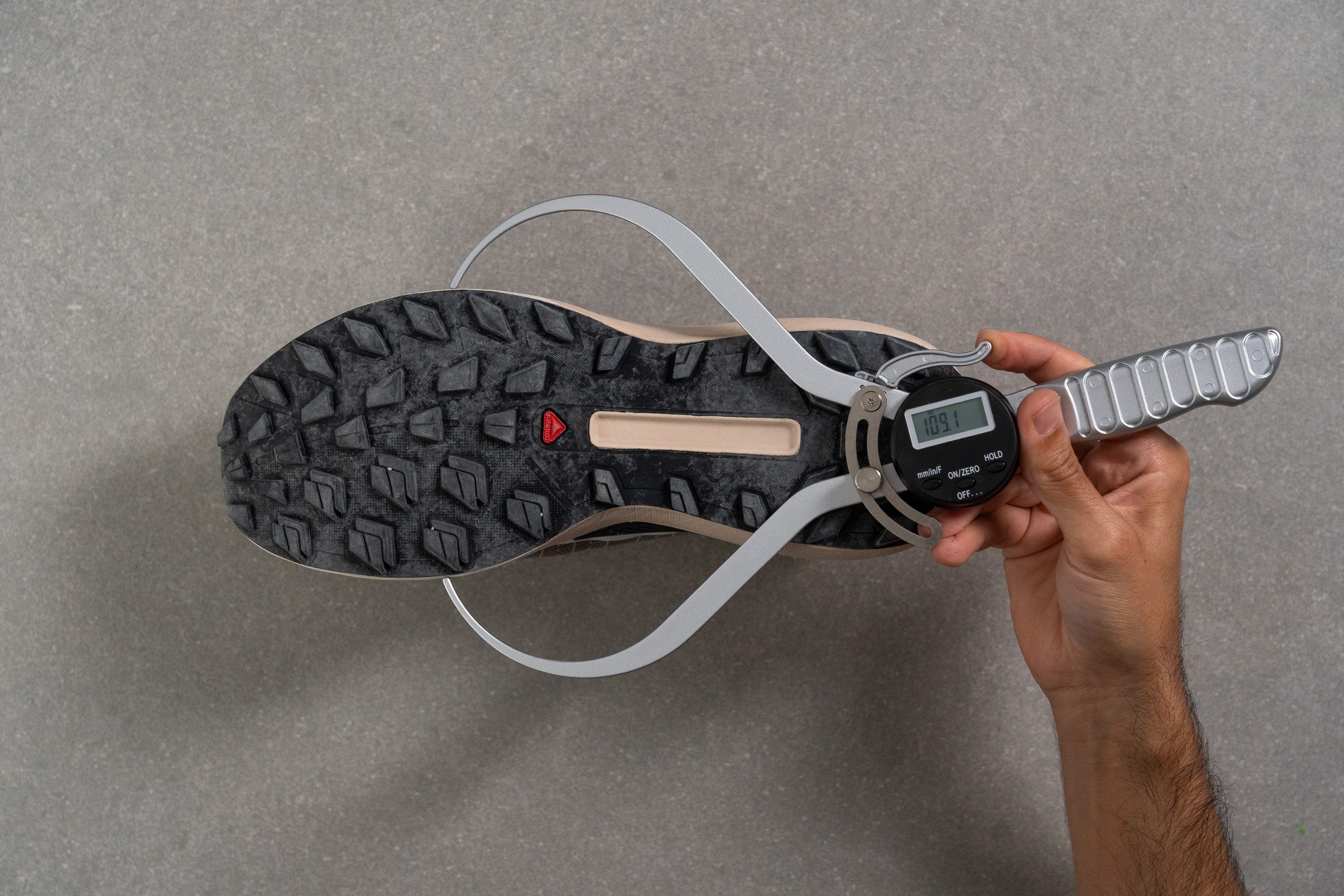
| S/Lab Genesis | 109.1 mm |
| Average | 112.8 mm |
Midsole width - heel
The heel dimensions are fairly average too at 91.3 mm, which explains why it doesn’t feel particularly stable for heel strikers with pronation issues. Still, we believe making it wider would’ve ruined its versatile, agile character.
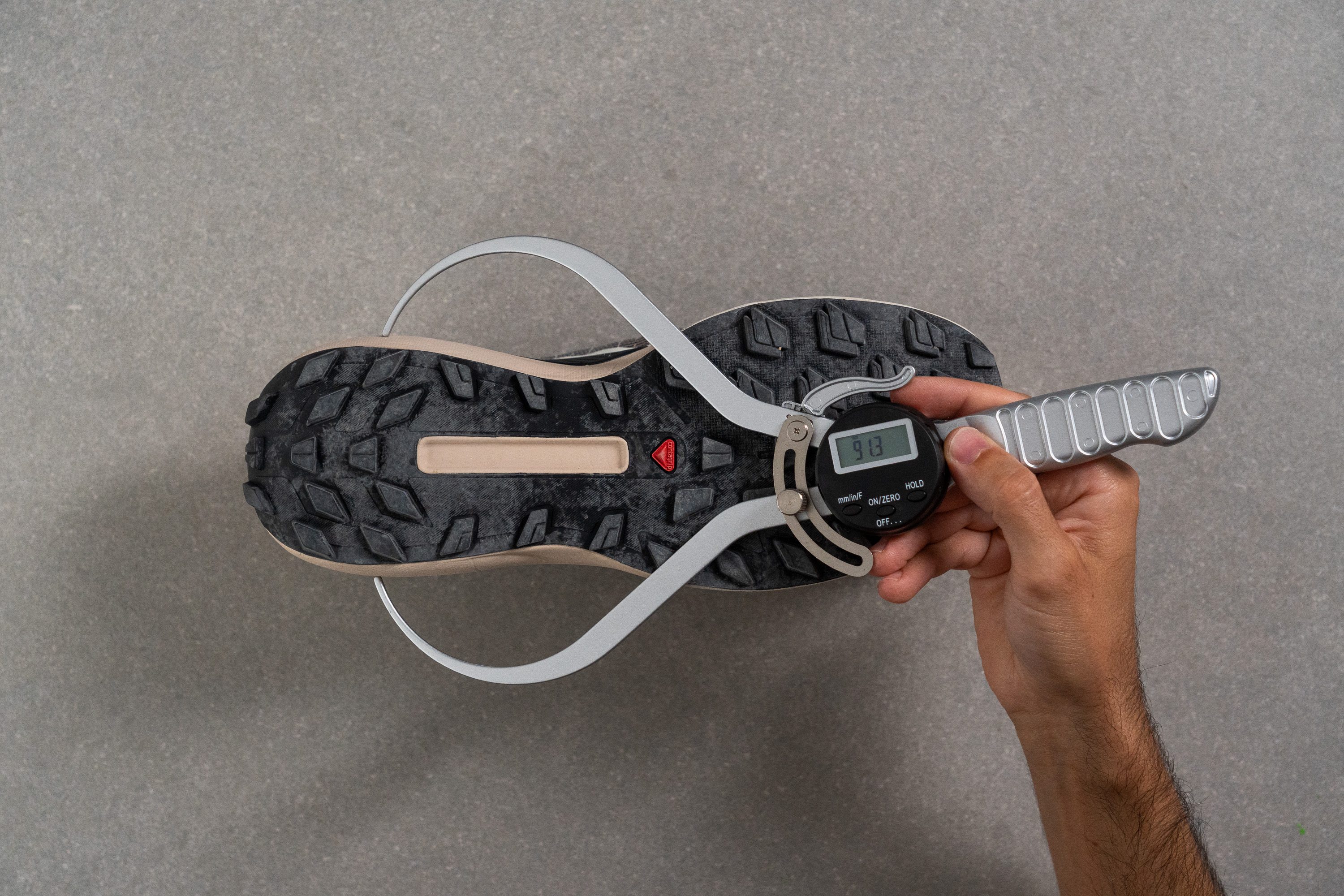
| S/Lab Genesis | 91.3 mm |
| Average | 89.9 mm |
Durability
Toebox durability
The TPU reinforcement around the toebox is impressively generous, shielding the foot from most accidental impacts with rocks. However, the MATRYX material prioritizes ultra-light construction over toughness, so we weren’t surprised when the upper scored just 2/5 in our initial Dremel test.
| S/Lab Genesis | 2 |
| Average | 3.1 |
Heel padding durability
This result caught us off guard, as we expected a stronger performance than a modest 2/5 for heel padding durability. There’s definitely room for improvement in this area.
| S/Lab Genesis | 2 |
| Average | 3 |
Outsole durability
The Contagrip outsole performed decently in our Dremel test, showing only 1.1 mm of wear. This confirms that the rubber offers good durability, so longevity shouldn’t be a concern for most runners.
| S/Lab Genesis | 1.1 mm |
| Average | 0.9 mm |
Outsole thickness
The rock plate plays an even more crucial role in this shoe because of its thin outsole. Excluding the lugs, there’s only 1.2 mm of rubber—a clear reflection of the S/Lab series.
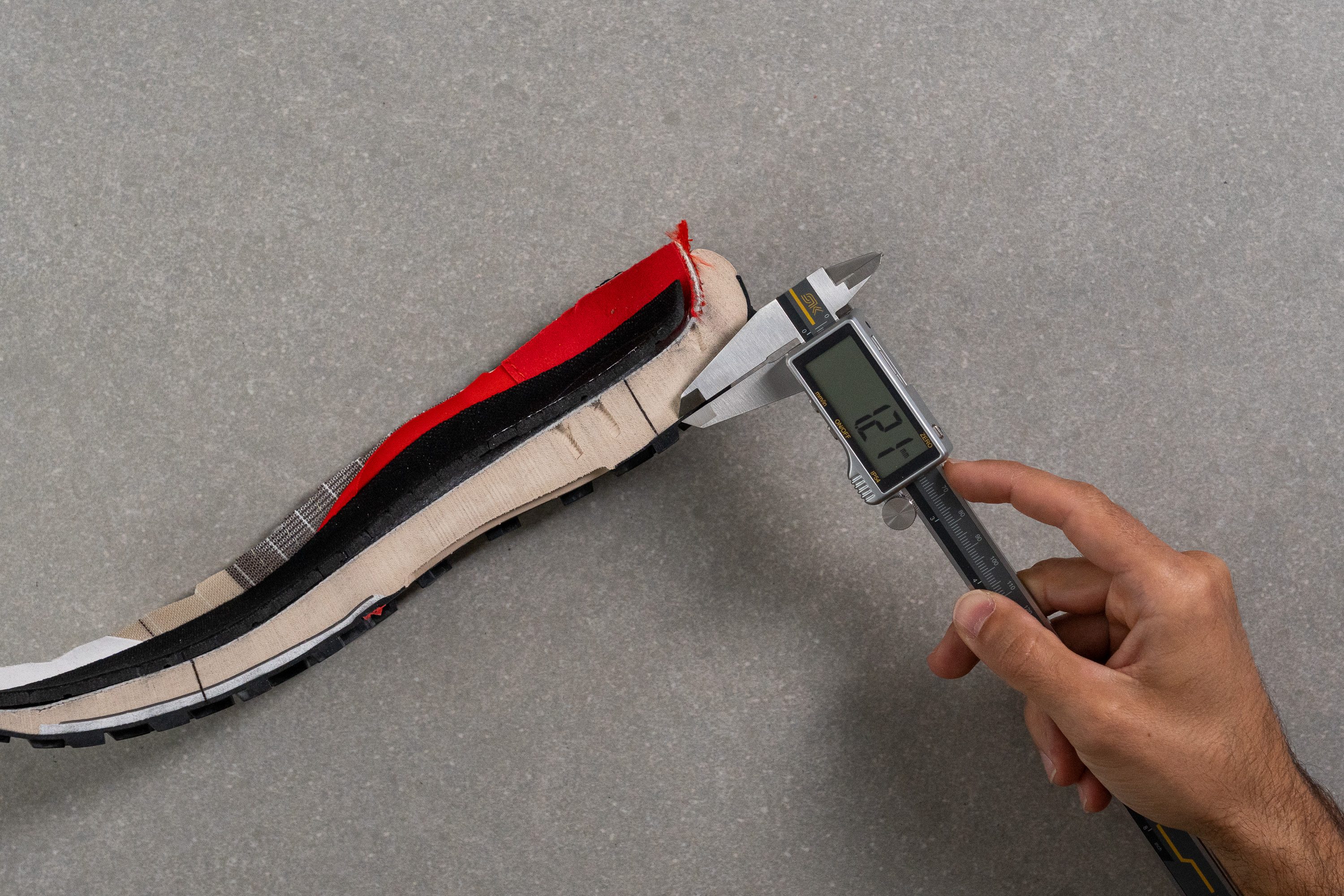
| S/Lab Genesis | 1.2 mm |
| Average | 2.2 mm |
Misc
Insole thickness
We found during testing that the footbed is slightly thinner than average at 4.0 mm.
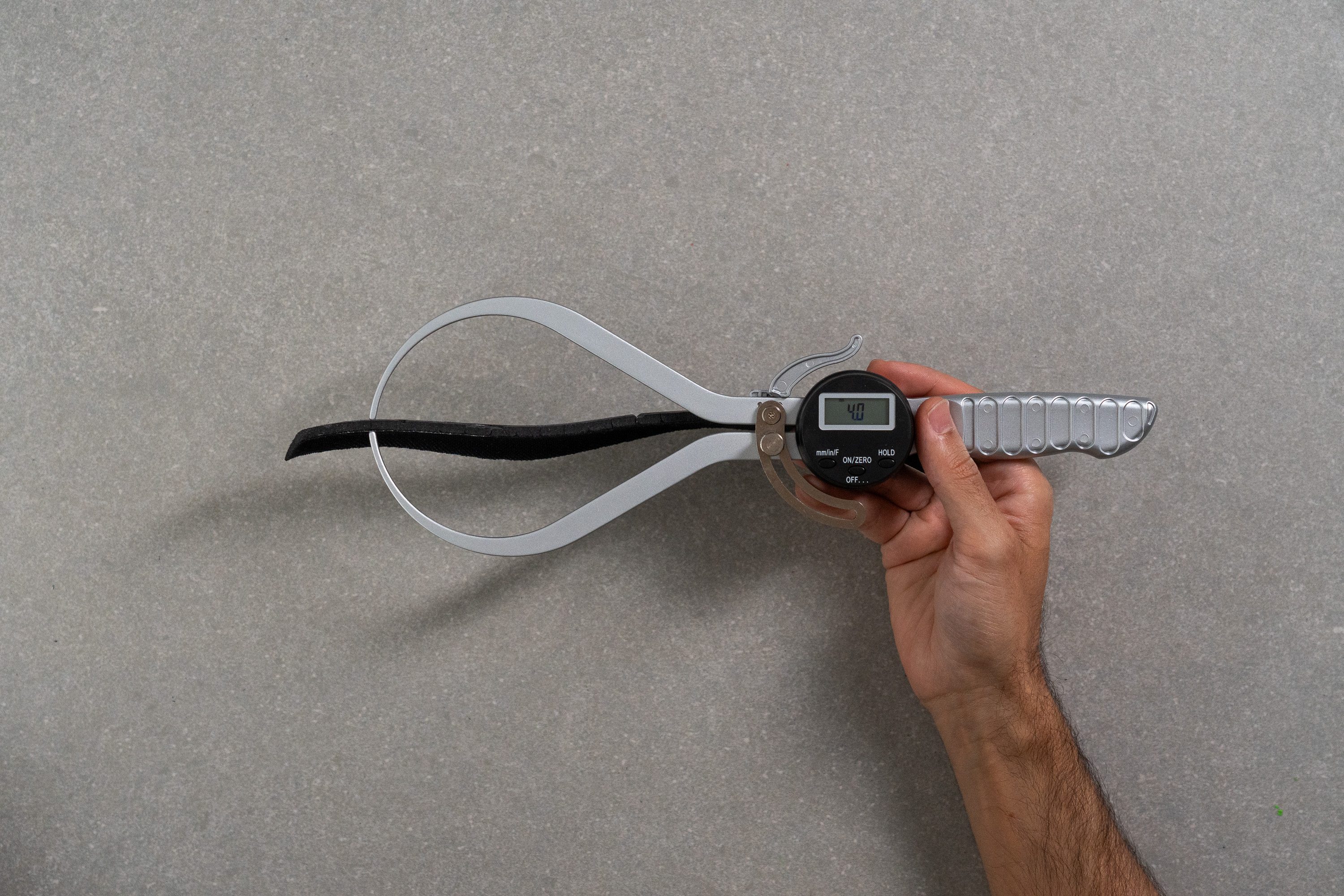
| S/Lab Genesis | 4.0 mm |
| Average | 4.7 mm |
Removable insole
The insole isn’t glued and removes effortlessly, making replacements quick and hassle-free.
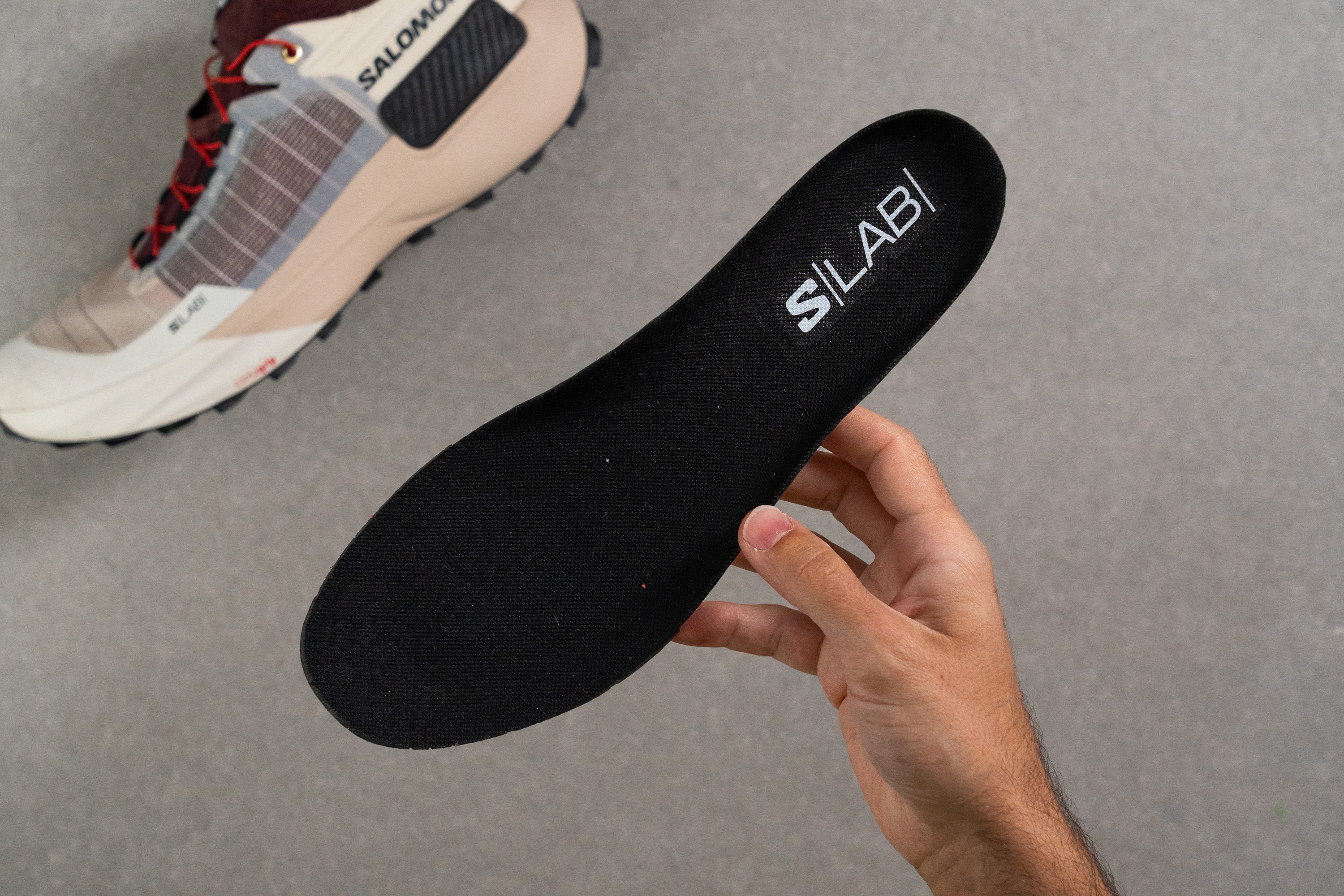
| S/Lab Genesis | Yes |
Midsole softness in cold (%)
After spending 20 minutes in our freezer, the midsole of the S/Lab Genesis became 21% firmer. It's a solid result that shows good temperature resistance.
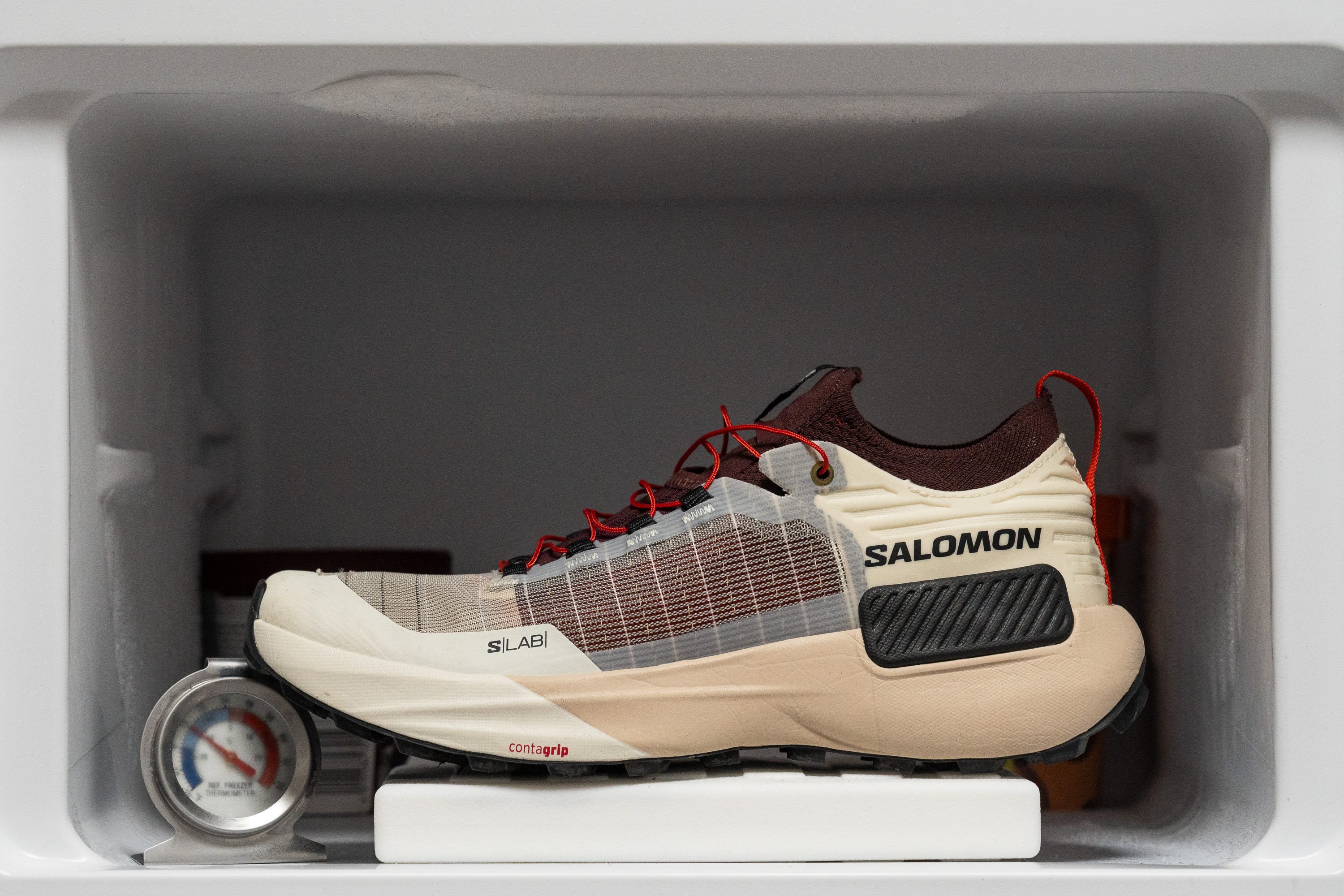
| S/Lab Genesis | 21% |
| Average | 26% |
Reflective elements
Unfortunately, the S/Lab Genesis lacks any reflective elements. For us it's a bit of a letdown, especially since this shoe is a fan favourite used for 24-hour ultras.
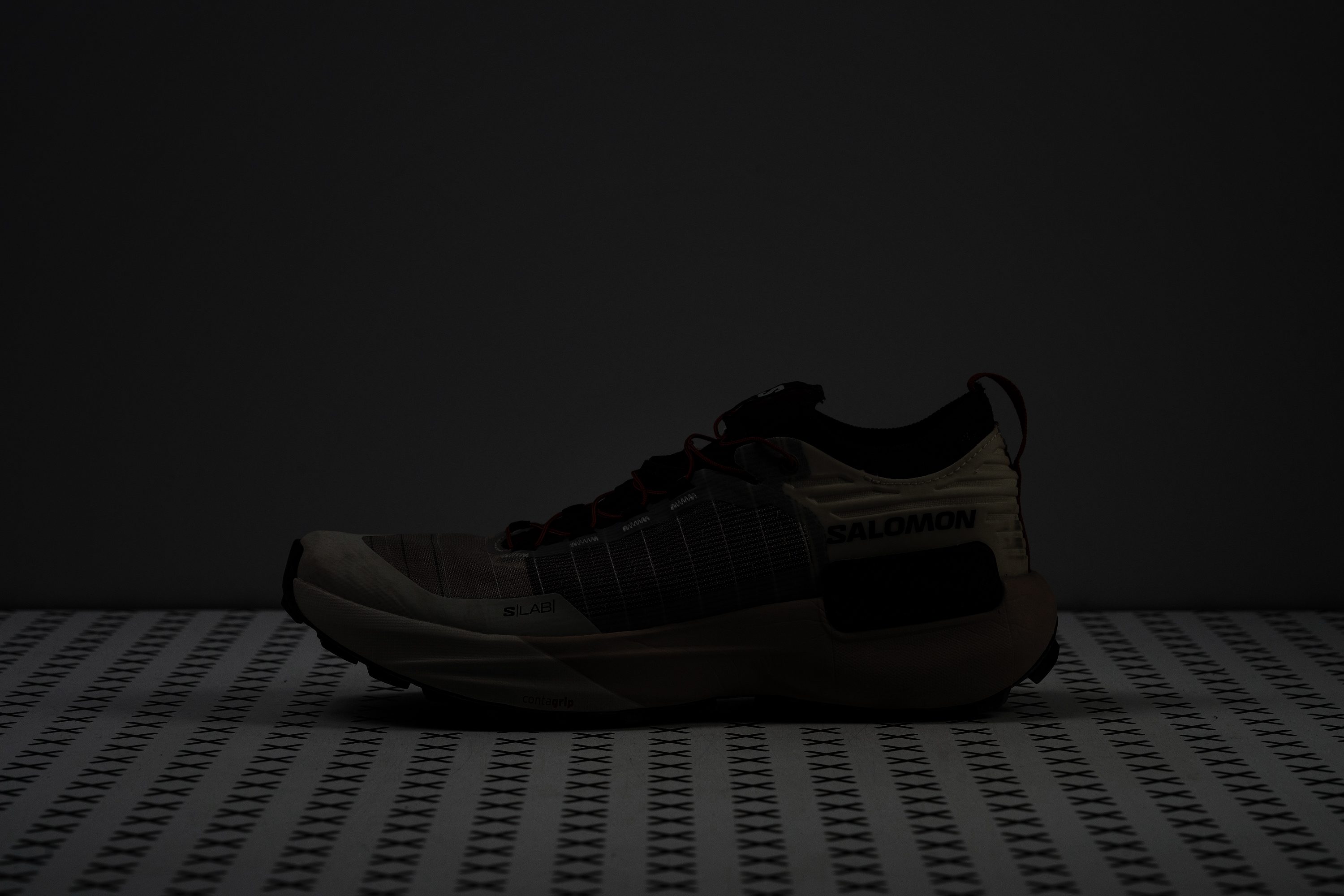
| S/Lab Genesis | No |
Tongue padding
The tongue of the S/Lab Genesis delivers a surprising boost in comfort with its generous 10.5 mm padding. It’s an unexpected touch, especially for such a lightweight trail shoe.
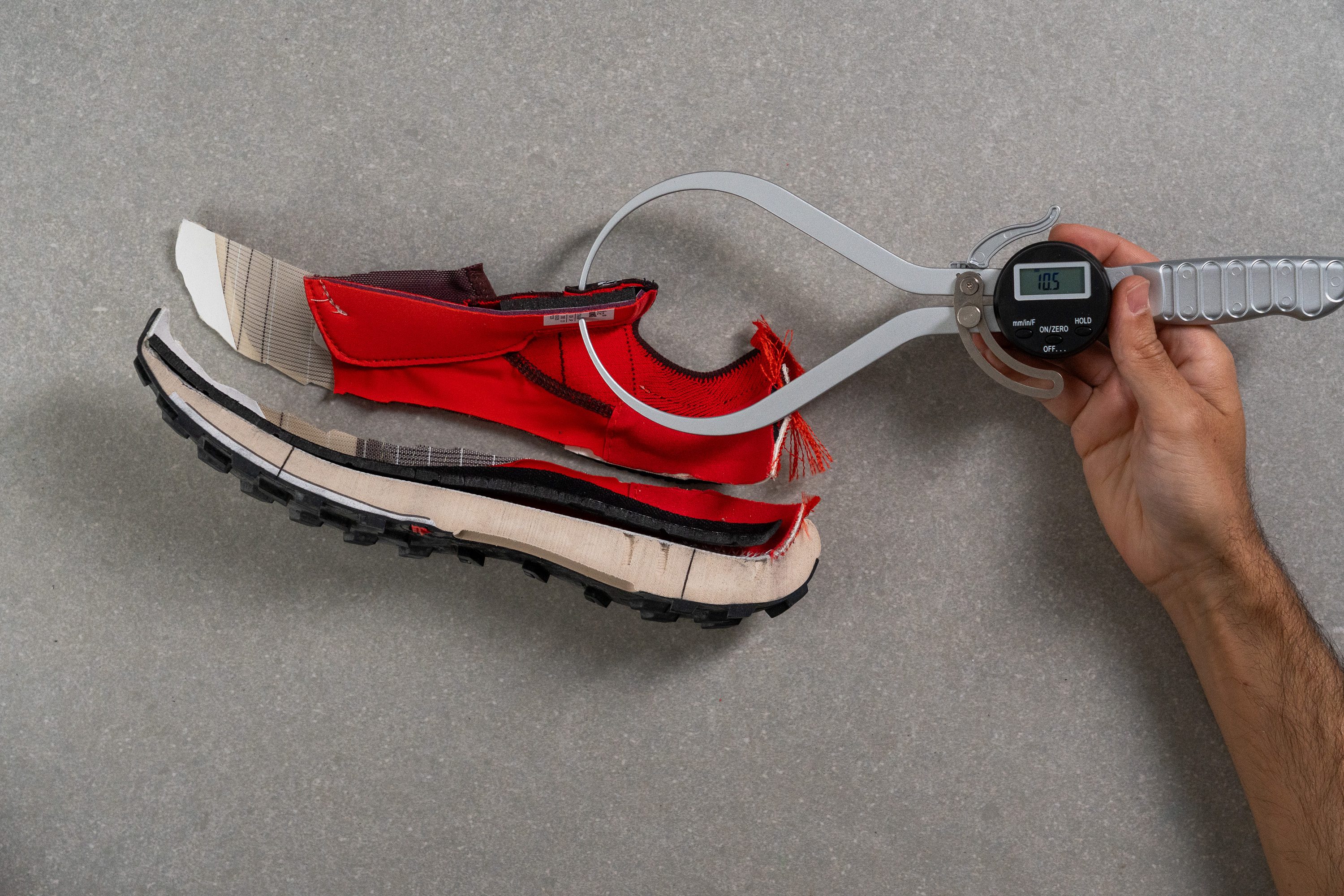
| S/Lab Genesis | 10.5 mm |
| Average | 6.4 mm |
Tongue: gusset type
The outstanding fit of the S/Lab Genesis comes partly from its sock-like tongue design, which wraps the foot securely from every angle, keeps debris out of the toebox and stays perfectly in place. Salomon also reinforced the instep with an extra layer that's visually unusual.
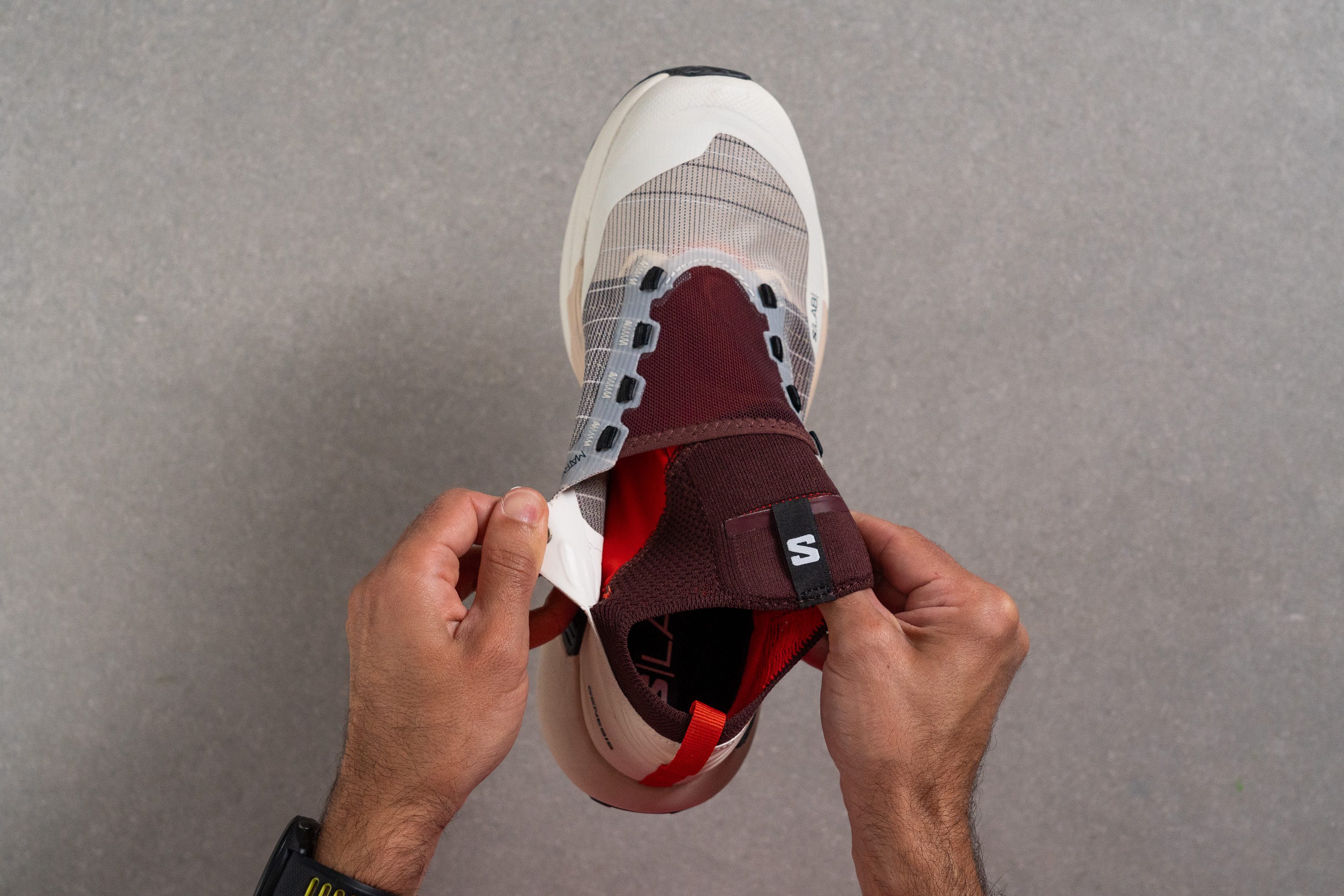
| S/Lab Genesis | Sock like |
Price
The price of this shoe is quite intriguing, as it sits in a middle ground. It’s cheaper than most trail super shoes but still on the expensive side of the spectrum. And for its moderate energy return, it's not easy to justify.
| S/Lab Genesis | $199 |
Heel tab
The S/Lab Genesis features a finger-loop heel tab seamlessly integrated into the collar. It’s securely attached and cleverly hides the upper’s stitching, adding both functionality and a clean look.
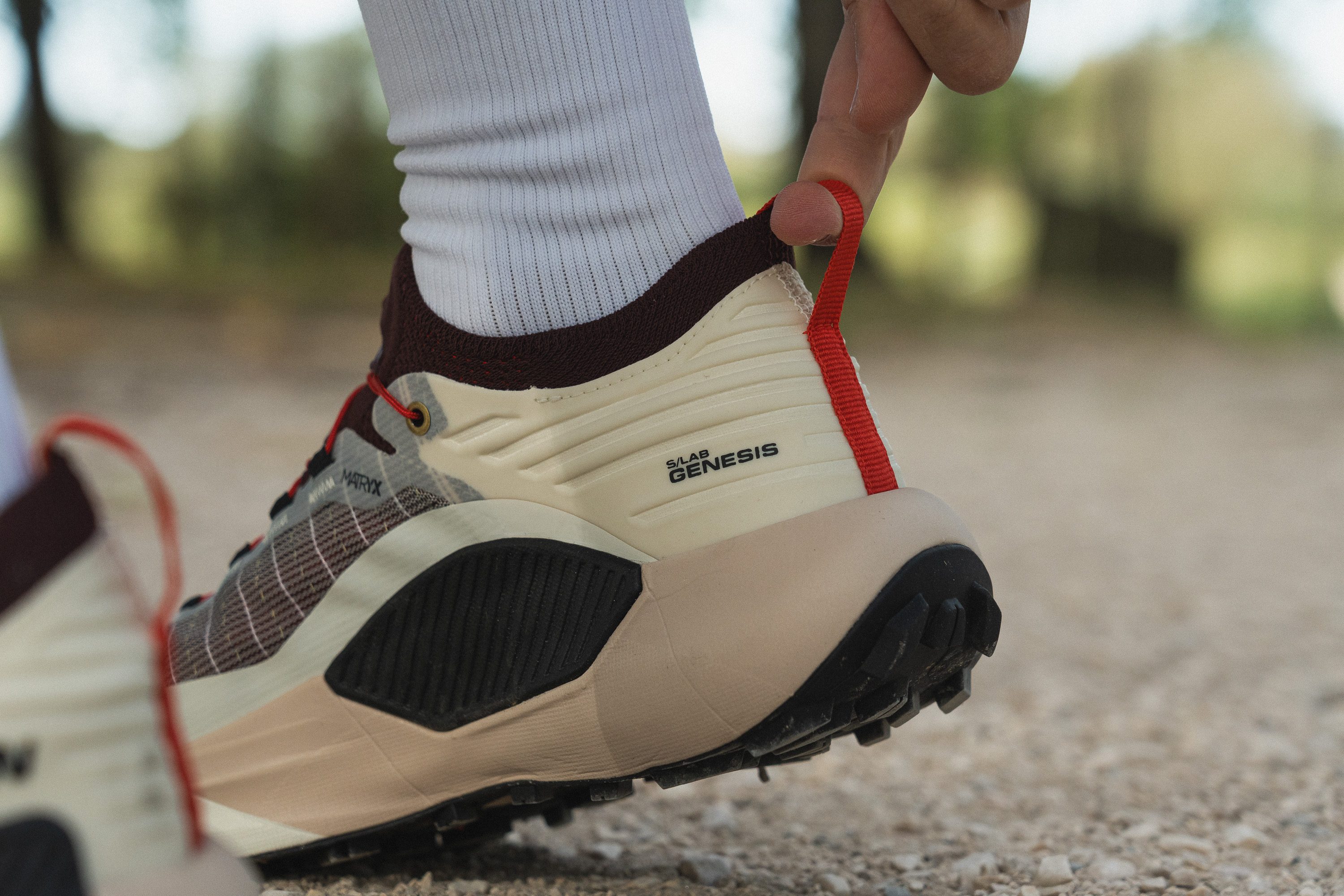
| S/Lab Genesis | Finger loop |
Quicklace
The QuickLace system performs flawlessly, just as we expected from Salomon. It delivers an effortless, precision-tightening experience that feels really secure and user-friendly.
We also loved the well-crafted lace garage, smartly integrated into the tongue and providing a clean, clutter-free finish.

